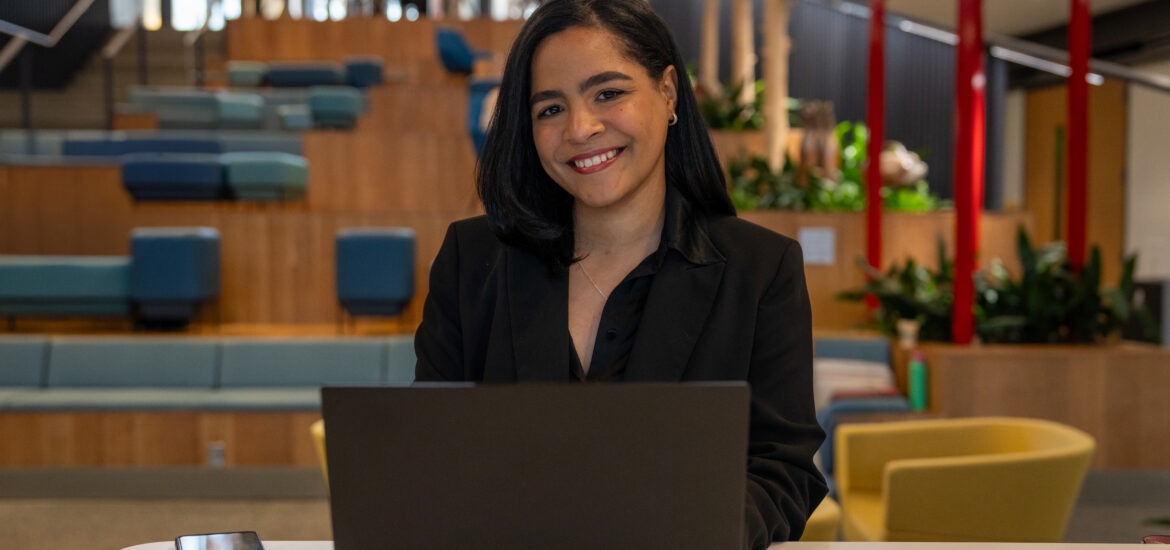From the Dominican Republic to a New Beginning When Flerida V. came to the United States from the Dominican Republic five years ago, she faced a challenge familiar to many adult learners—starting over in a new country, language, and education system. She began by taking English as a Second Language (ESL) classes, then earned an […]
Humanities & Social Sciences
Is a Bachelor’s Degree in Criminal Justice Right for You?
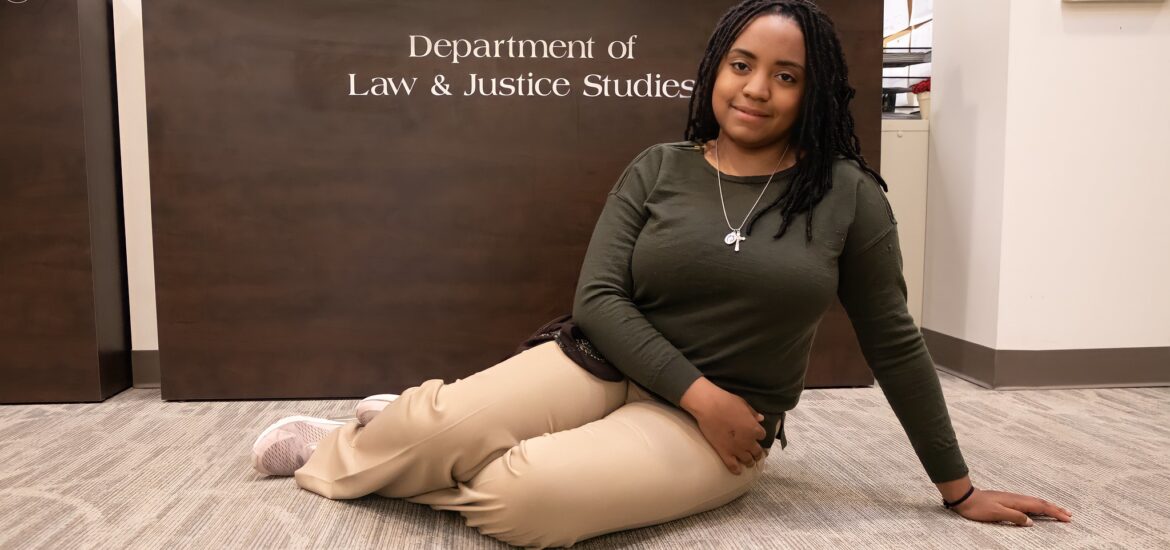
What Is a Bachelor’s Degree in Criminal Justice? A bachelor’s degree in criminal justice is an undergraduate program that explores the legal system, law enforcement, corrections, courts and public policy while building skills in research, analysis, and problem-solving. If you’re considering a future in law, law enforcement or public policy, you may be asking yourself: […]
5 Signs It’s Time to Get Your Bachelor of Liberal Studies Degree Online
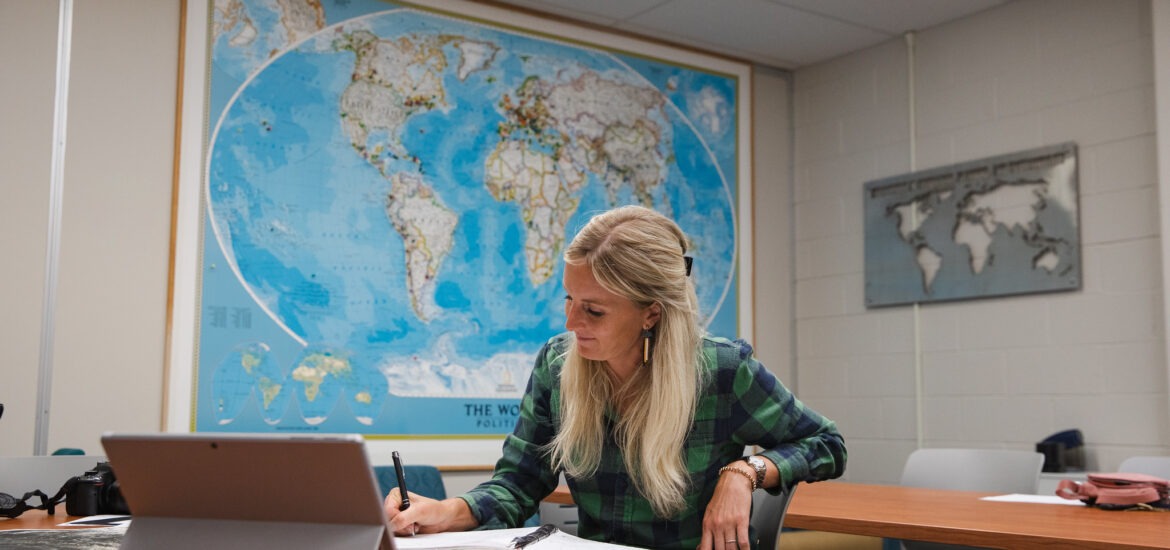
Thinking About Finishing—or Starting—Your Bachelor’s in Liberal Studies? Now Might Be the Right Time to Go Online. Maybe you started college but never finished your bachelor’s degree. Maybe you’re considering a career change or want a flexible, online degree that fits your life. Or maybe you’re curious by nature and want a program that blends […]
Prisoner Reentry Simulation Deepens Students’ Learning [VIDEO]
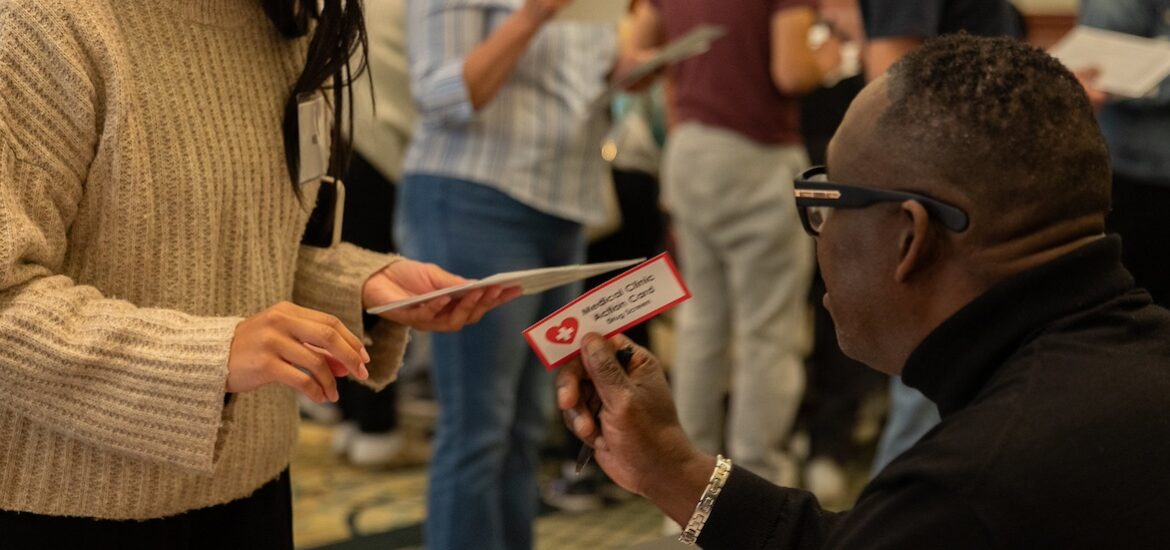
Pre-Professional Activity For Law & Justice Majors Hosted in Tandem with the Federal Government What is the experience like when someone has to reintegrate with the community after time in prison? Law and justice studies majors experienced some of the difficulties of leaving prison firsthand during a Prisoner Reentry Simulation held on campus. This free, […]
What Can a Liberal Studies Major Do for You?
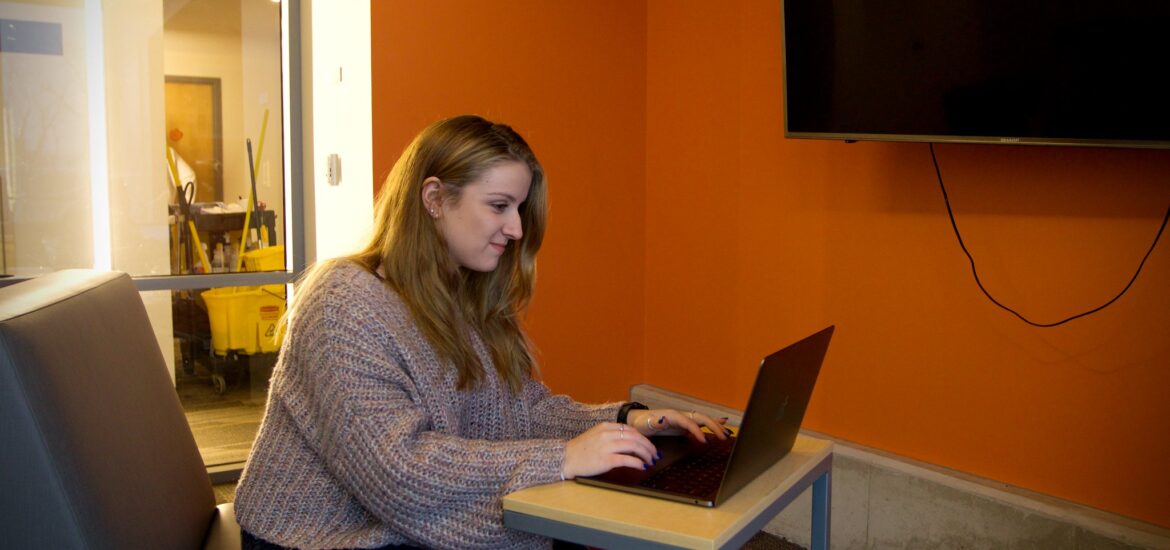
Why an Online Liberal Studies Degree Could Be Your Smartest Next Step A liberal studies degree offers the kind of flexibility and breadth that traditional majors often can’t—making it a perfect fit for learners with wide-ranging interests or goals that don’t fit neatly into one box. If you’ve ever felt like traditional degree paths didn’t […]
How to Choose Between Criminal Justice Degrees Online
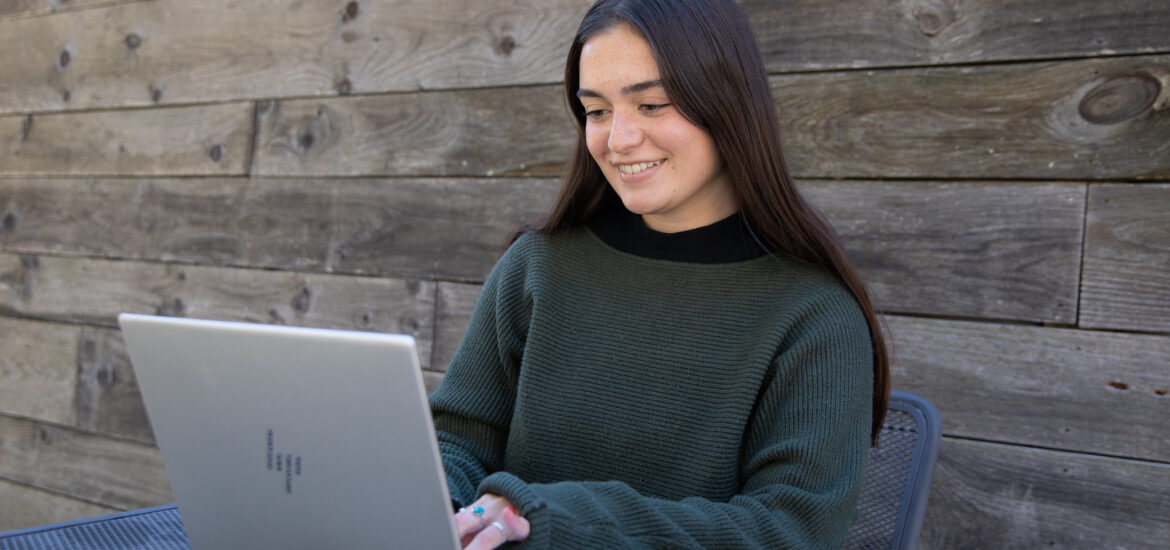
Key Factors to Consider When Comparing Online Criminal Justice Degrees Deciding on the right path for your education is a big step, and choosing an online pre-law or criminal justice program is a major milestone in your academic and professional journey. Whether you’re preparing for law school, looking to advance in public safety, or pivoting […]
Student Government President Shares Why He Takes Classes Online
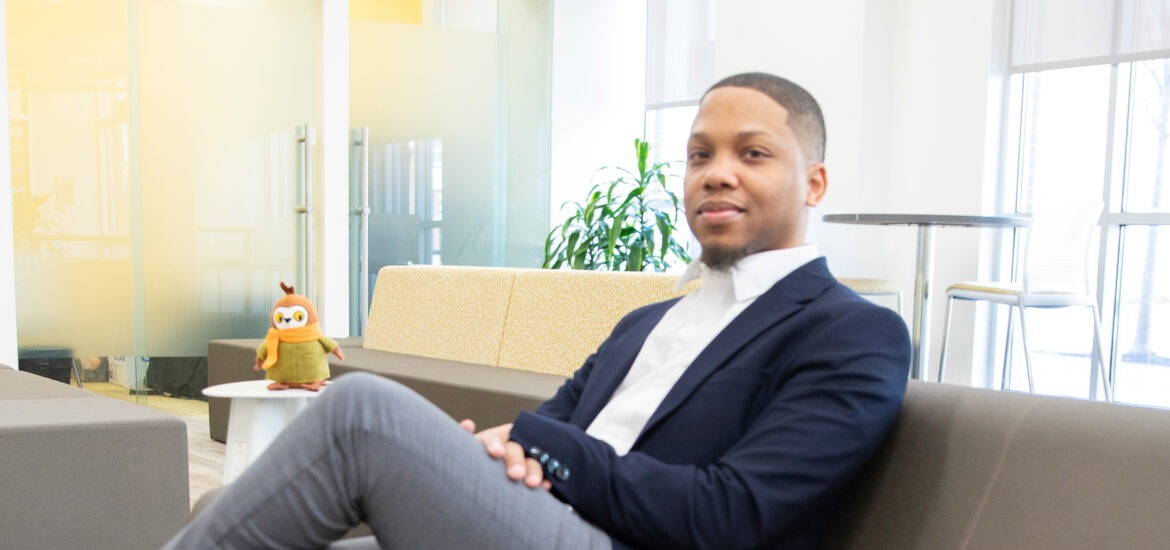
Rowan University Campus Leader Prefers Online Classes Rowan University senior Zackary Brown, a double major in both philosophy and public relations, will graduate this spring. This year Zackary stepped into the most impactful, and important, student leadership role on campus: that of student body president (SGA). Not only has he taken on significant leadership responsibilities, […]
Human Services Degrees & Master of Social Work Builds Brighter Futures [VIDEO]
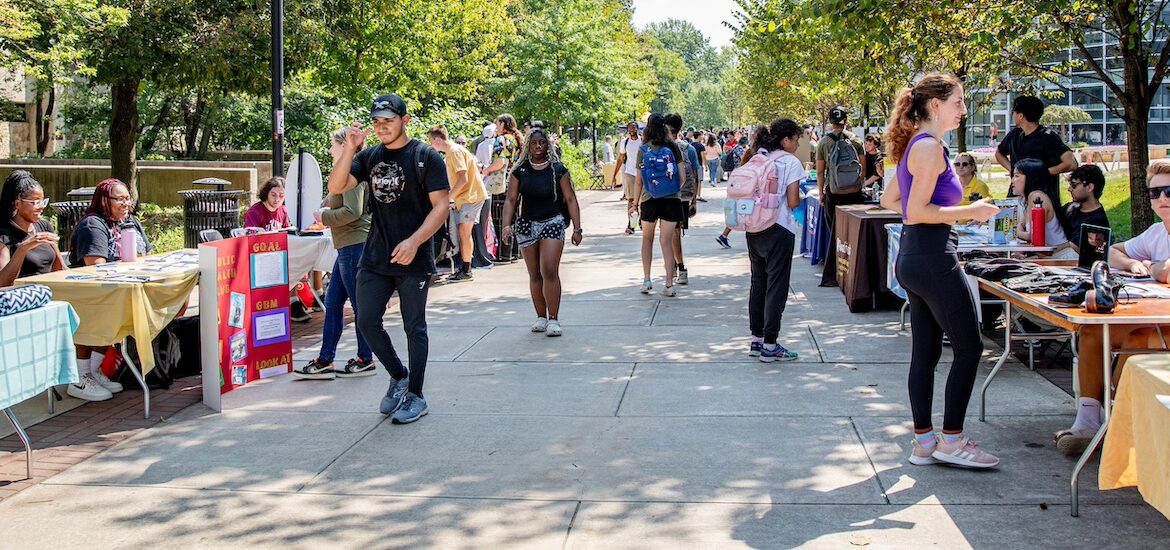
Rowan University’s Newly Launched MSW Deepens Students’ Opportunities to Help Others Through Their Careers While it might seem like a narrow focus, helping individual people, Human Services* has a direct and wide impact on entire communities. After pursuing nursing, Dimirra Brown decided to go back to college at Rowan University. She began to realize that […]
What Can You Do With an Economics Degree?
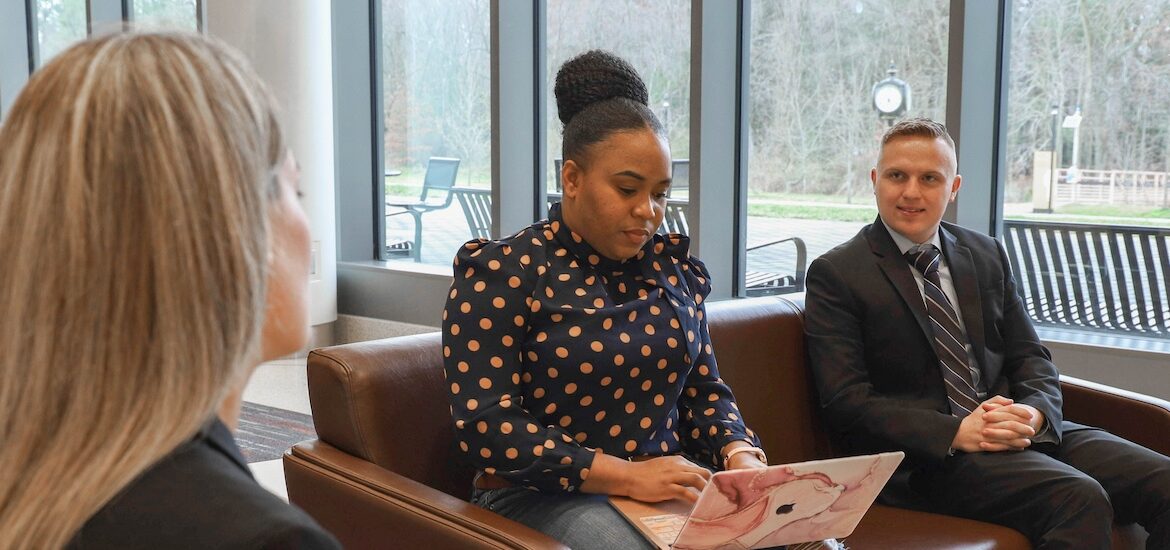
An Insightful Look Answering ‘What Is Economics?’ & Economics Major Jobs Pursuing an economics degree offers a comprehensive understanding of how societies allocate resources, make decisions and address challenges in various sectors. If you’ve ever wondered ‘what can I do with an economics degree?’, the answer is: quite a lot. This major equips students with […]
Holocaust & Genocide Education Scholar Leads Study Abroad Programs

Rowan University History Professor Curates Impactful & Transformative Experiences for Students History professor and Associate Director for the Rowan Center for the Study of Holocaust, Genocide, and Human Rights Movements, Professor Jody Manning has crafted study abroad programs that promise an education far beyond the confines of a traditional classroom. His study abroad trips embody […]
What Jobs Can You Get with an Online Criminology Degree?
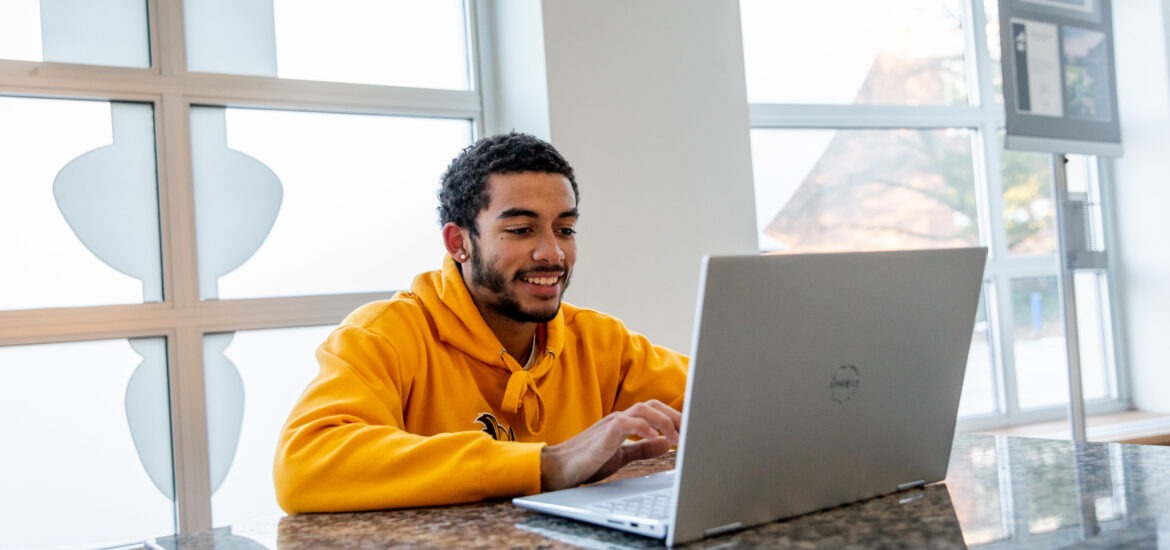
Career Paths You Can Pursue with a Criminal Justice Degree If you’ve ever been curious about working in law enforcement, the court system, corrections, or security services, earning an online criminology degree can open doors to exciting career paths. But what exactly can you do with a criminal justice degree? Let’s explore the opportunities available […]
What Is a Liberal Studies Degree and Why Earn Yours Online?
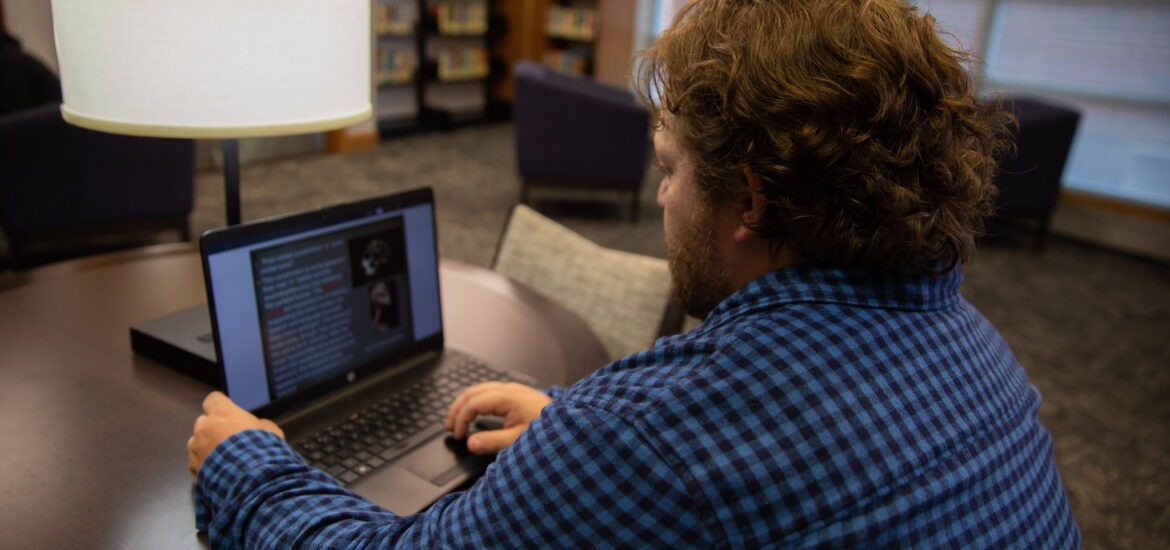
What Is a Liberal Studies Degree? If you’re wondering what a liberal studies degree is, it’s a degree that provides a versatile and well-rounded education that prepares students for a wide range of careers. It focuses on critical thinking, problem-solving, communication, and analytical skills, which are highly valued across industries. Unlike specialized degrees, a liberal […]
10 Eye-Opening Reasons to Get an Online Criminal Justice Degree
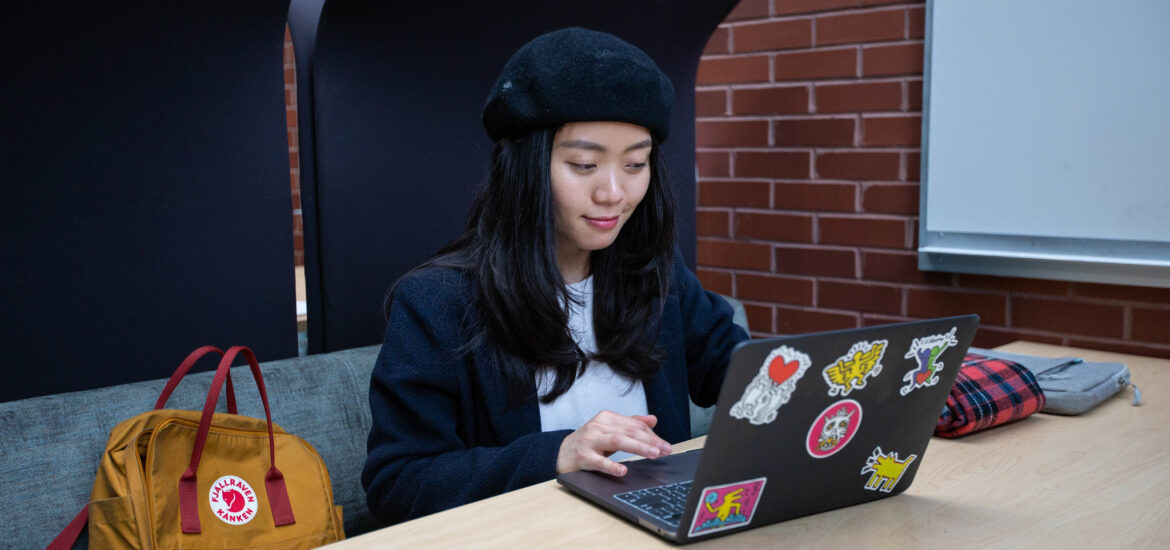
Should I Get My Bachelor’s Degree in Criminal Justice Online? Criminal justice is a growing and dynamic field, offering opportunities in law enforcement, corrections, homeland security, and the legal system. But with busy schedules and work commitments, many students wonder: Is earning a criminal justice degree online a smart choice? The short answer—yes! An online […]
What Can You Do With an Anthropology Degree?
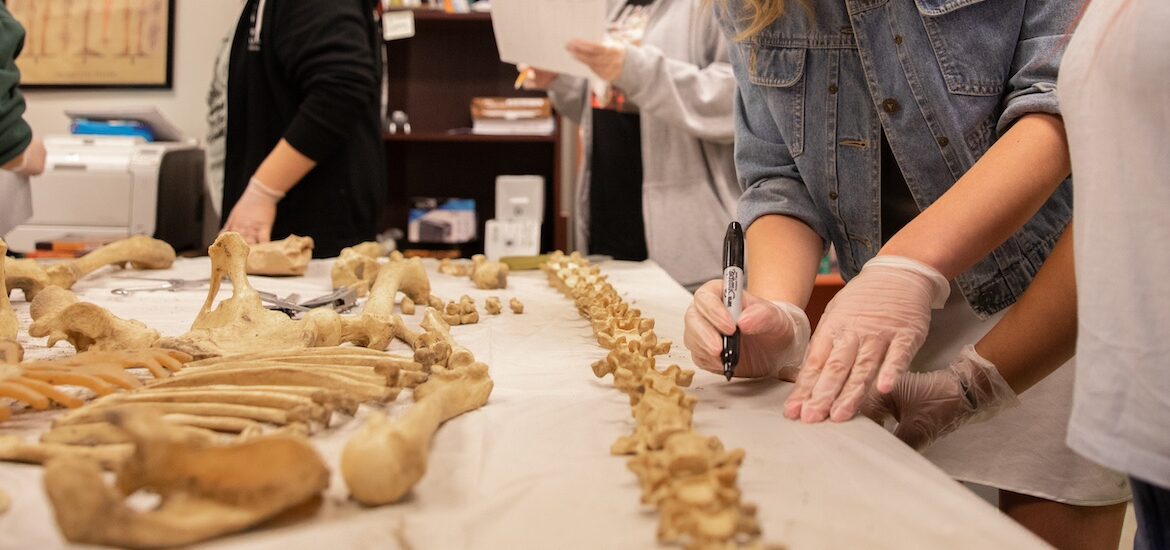
Rowan University’s Bachelor’s of Anthropology Degree Provides Grads with Foundation for Success Anthropology, the study of human societies, cultures, and their development, offers a comprehensive understanding of the complexities of human behavior and social structures. This broad perspective equips graduates with versatile skills applicable across various industries. Rowan University’s anthropology program, with options to either […]
Language and Culture: Preparing Global Citizens

Faculty chairperson & alumni answer: How does a world languages degree benefit students? The Department of World Languages at Rowan University, led by Dr. Marilyn S. Manley, is committed to preparing students for active participation in language exploration and cultural understanding. The department offers a diverse array of courses and academic programs in American Sign Language, Arabic, […]
Alumni Success: The Blending of Two Degrees

Rowan University Political Science & Communication Studies Graduate Details Launching His Post-College Career After graduating from Rowan University in 2019 with two bachelors’ degrees, one in communication studies and the other political science, Conor Schmiegel’s career would take him in a variety of directions with a variety of ebbs and flows that leverage both of […]
Purposeful & Powerful: Master of Social Work Launches
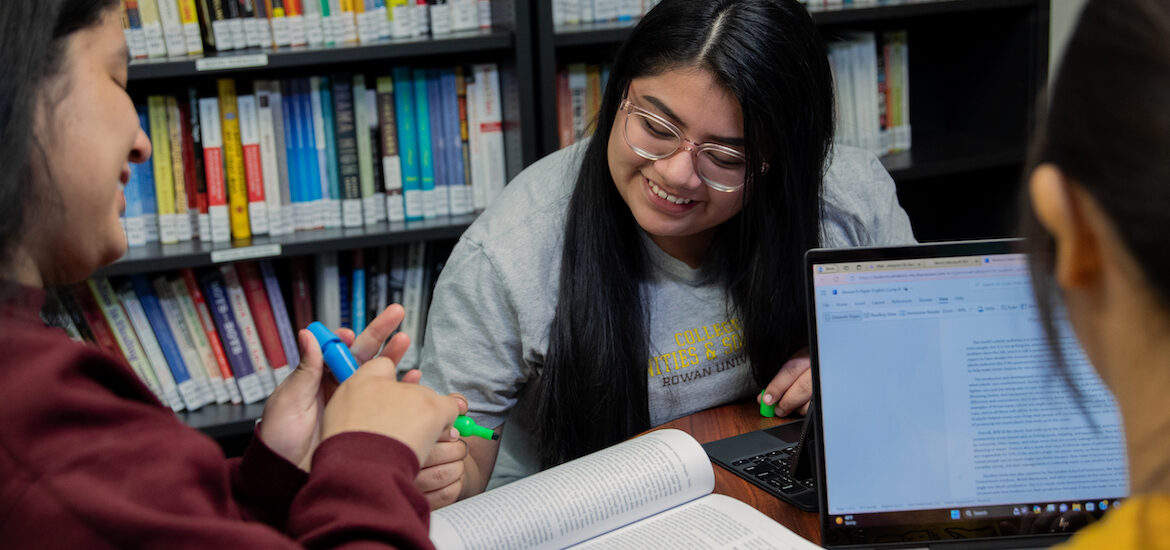
Rowan University’s Master of Social Work (MSW) Program Inspires Students & Their Futures Rowan University’s newly launched Master of Social Work has been a labor of love two years in the making. Led by program director Dr. Mary Kay Tuohy, who holds a doctorate in clinical social work from the University of Pennsylvania, and director […]
My Favorite Class: Honors Public Speaking
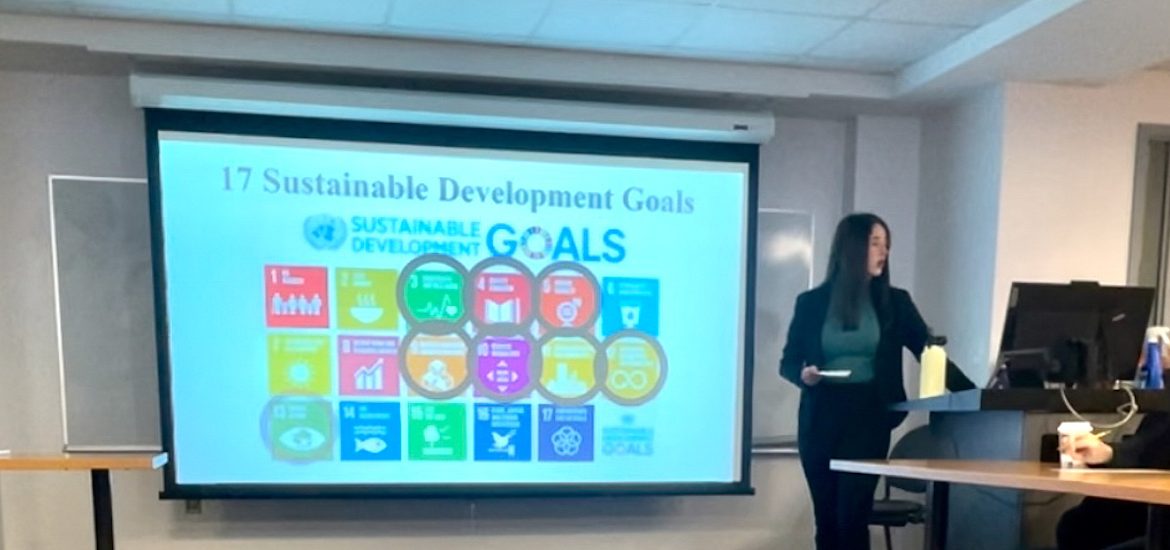
This story is a part of the “My Favorite Class” series. With 100+ majors and countless areas of faculty expertise across campus, dip into one of these classes to fulfill your Rowan University course requirements. Meet Jordyn D. a junior Dance & Elementary Education double major and a member of the John H Martinson Honors […]
Human Services, Leading & Impacting Lives [VIDEO]

Human Service professionals work with diverse populations providing a wide variety of social, personal and health services depending on need. Potential career paths include becoming a case worker, social advocate, welfare service professional, child welfare professional or law enforcement. Meet adult learner Dimirra B. a senior human services major who aspires to continue to be […]
Anthropology Majors Share Their Professional Goals

Anthropology is the scientific and humanistic approach understanding human origins, and biological and cultural diversity. Potential career paths can include becoming an anthropologist, archeologist, forensic science technician, curator, medical scientist, museum technician and conservator or geographer. Meet anthropology majors Nicole A., Goldie B. & Nicholas T. as they share their professional goals in their field. […]
Unlock Career Success with Rowan’s RIPPAC

RIPPAC’s Growth Under Dr. Dworkin Events and Opportunities For Students The Importance of Internships and Getting Involved Internship & Experiential Learning Stories Learn how Rowan Profs go Beyond the Classroom to grow professionally, as well as personally, through internships and other experiential learning. Experiential learning includes hands-on learning opportunities provided through research, student clubs, campus leadership, student worker jobs, service-learning […]
Political Science Grow Research & Internships

Internship & Experiential Learning Stories Learn how Rowan Profs go Beyond the Classroom to grow professionally, as well as personally, through internships and other experiential learning. Experiential learning includes hands-on learning opportunities provided through research, student clubs, campus leadership, student worker jobs, service-learning projects and volunteerism. In addition, Rowan’s Office of Career & Professional Development provides career support that’s more than just […]
Neurodiversity Advocate Promotes Autism Awareness at Rowan

One Rowan University Student Breaks Down Barriers All Year Round, Not Just During Awareness Months In 1997, sociologist Judy Singer introduced a new terminology to the world of science/medical world called neurodiversity, which is a concept that helps those to understand that there are varied ways that each person’s brain processes information, functions, and presents […]
Transfer Student Bonnie’s Study Abroad Adventure in Colombia

Bonnie W, a senior international studies major from Downe Township, NJ (Cumberland County) shares her personal experience with us about the study abroad program she is participating in.
Explore Rowan’s New Master in Public Policy Program

Rowan University recently launched a new Master in Public Policy program. Professor Elaine Zundl is one of the professors involved in creating the program and shares with us what students can expect. How did you become involved with the creation of this program? My colleagues, including Dr. Lawrence Markowitz, Dr. Katharine Javian, and Dr. Danielle […]
Bridging the Gap Between the Art and Business Worlds

Today we feature a first-person perspective from Isabella Shainline, a rising senior English Education major, photography minor, and John H. Martinson Honors College student from Pitman, NJ (Gloucester County). Isabella co-founded Business Hall’s Creatives 230, which is an interdisciplinary learning lab for creatives and entrepreneurial students. Creatives 230 started as a pipe dream. In my […]
Fashion Marketing Study Abroad Student Experience

Today we feature Mark B., a senior English major from Vernon, NJ (Sussex County) who will continue his studies as a graduate student this fall after he earned his bachelor’s degree this month. This story is the second of a three-part series where Mark will be featured based on his activities and campus involvement. Part […]
First-Year Student on Finding Her Path at Rowan

Meet Kayla M, an exploratory studies (undeclared) major, and member of the Women’s Rugby Team. Kayla just completed her first year and is from Galloway, NJ (Atlantic County.) What is Exploratory Studies? “Exploratory studies means that you do not have a set major; you’re exploring what you want to do. You have the opportunity to […]
Connor S. From Student to Political Operative

A proud graduate from both the Political Science and Communication Studies departments, Connor S.’s segue from student to professional illustrates the impact of leveraging classroom learning, internships and networking to successfully launch a career. As a young grad from the local Gloucester County, NJ, area, having graduated four years ago, Connor’s story shows how “local […]
Interdisciplinary LAB: Co-Founder’s Story
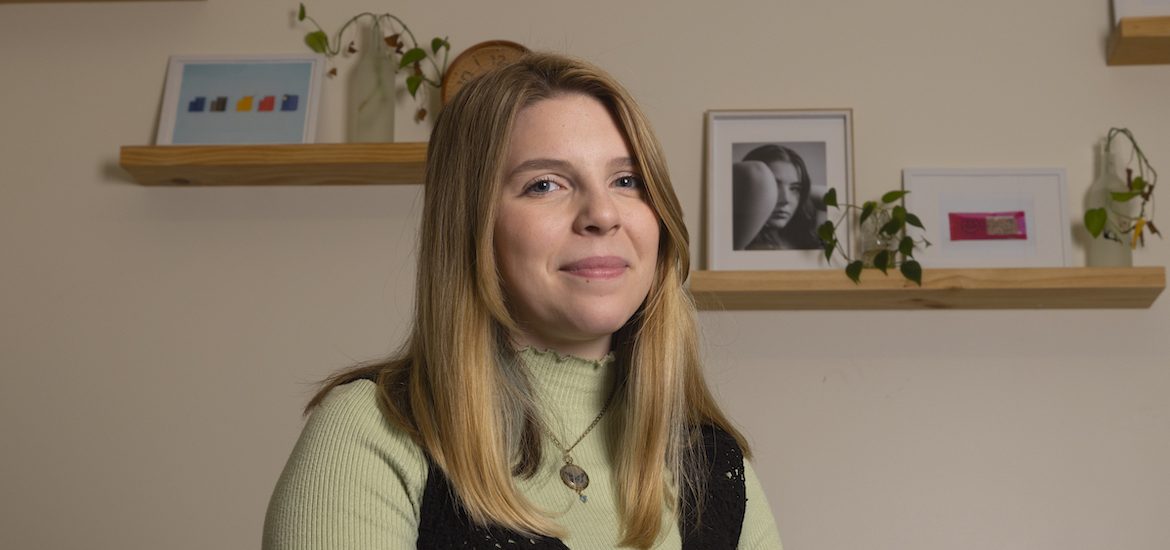
Today, we hear from Isabella S, a junior English Education major, Photography minor, and John H. Martinson Honors College student from Pitman, NJ (Gloucester County). Isabella co-founded Business Hall’s Creatives 230, which is an interdisciplinary learning lab for creatives and entrepreneurial students. “Last year, my photography professor Jenny Drumgoole and I went over to Business […]
From High School to Showbiz and Back Again: Rowan Alum Janine Edmonds Tells All on Her Career as a Guidance Counselor

Today we feature Janine Edmonds, a graduate of Rowan University’s class of 2001 with a degree in Radio/Television/Film and a 2006 graduate of Rowan’s M.A. In Counseling Educational Settings program. Here, Edmonds tells us about her path returning to higher education and her experience as a guidance counselor for Oakcrest High School. Did You Always […]
How Law and Justice Major Keshawn Porter Stepped out of His Comfort Zone

Today we feature Keshawn Porter, a Law and Justice major from Essex County, who shares how joining on-campus clubs and organizations changed his Rowan experience for the better. Could you tell us a few on-campus activities, clubs, sports or events that you’ve attended? What was your favorite, and why? I am part of the Black […]
Breaking Barriers: How Perseverance and Family Found Kayla College Success

Meet Kayla Molinaro, a junior Law and Justice major with minors in and Sociology and Pychology from Rockaway, NJ (Morris County). Kayla is a member of the first class of Rowan’s National Honor Society for First Generation College Students, and her sister now joins her studying at Rowan. Kayla shares what it’s like to be […]
Hispanic Heritage Month #PROFspective: Law & Justice, Psychology Double Major Katerine A. on Not Hiding Her “Personality, Culture or Heritage”

Today, as part of our Hispanic Heritage Month #PROFspective series, we feature Junior Katerine A. (she/her) from Bronx County, New York. Katerine is double majoring in Law & Justice Studies and Psychology. She discusses her Rowan experience, staying true to herself, and gives advice to future students. What is your student experience here at Rowan? […]
Honoring Heritage: Meet Kyle I., History Student

Today, as part of our Hispanic Heritage Month #PROFspective series, we feature Senior Kyle I. (he/him) from Woodlynne, NJ (Camden County). Kyle is double majoring in History and International Studies, having transferred to Rowan University from Camden County College. He discusses his experience at Rowan, professional aspirations, and gives advice to future students. What is […]
Hispanic Heritage: Jazlyn Batista’s Journey

Like what you see? LEARN MORE Story by:Natalie DePersia, senior public relations major Photos courtesy of: Jazlyn Batista
Hispanic Heritage Month #PROFspective: Law & Justice Major Kathleen has “Dreamed Big”

Today, as part of our Hispanic Heritage Month #PROFspective series, we feature senior Kathleen (she/her) from Perth Amboy, NJ (Middlesex County). Kathleen is majoring in Law & Justice Studies, having transferred to Rowan University from Rowan College of South Jersey. She discusses her experience at Rowan, professional aspirations, and gives advice to future students. What […]
Meet Transfer Profs: Featuring Students from the Edelman College of Communication and Creative Arts

Today we feature two incoming transfer students: Karis Brady (she/her) and Meredith Deferro (she/her) from Gloucester County and Camden County respectively. The two tell us about their majors, why they’re excited to start classes at Rowan, and give advice to future transfer students. Welcome to Rowan! Could you share with us one thing you are […]
Meet Transfer Profs: Welcoming Students from the College of Humanities and Social Sciences

Today we feature incoming transfer students April Casey (she/her), an English major from Gloucester County and Emma Rodriguez (she/her), an Anthropology major from Ocean County. The two tell us about their majors, why they’re excited to start classes at Rowan, and give advice to future transfer students. Welcome to Rowan! Could you share with us […]
Hispanic Heritage Month #PROFspective: Law and Justice Major Cisley Calva on Taking Pride in Her Path and Culture

Like what you see? LEARN MORE Story by:Natalie DePersia, senior public relations major Photos courtesy of: Cisley Calva Internship & Experiential Learning Stories Learn how Rowan Profs go Beyond the Classroom to grow professionally, as well as personally, through internships and other experiential learning. Experiential learning includes hands-on learning opportunities provided through research, student clubs, campus leadership, student worker jobs, service-learning […]
Deepening Knowledge In History & Anthropology Through a Master’s Degree

Graduate Pursues M.A. in Holocaust & Genocide Education Today we speak with Kathryn Seu, a recent Rowan University graduate with degrees in History and Anthropology. She will continue her studies by pursuing her master’s degree in Holocaust and Genocide Education, the first program of its kind, through Rowan Global. Kathryn is from West Berlin, NJ […]
Rowan’s First Storytellers Camp Inspires Creativity

What is Storytellers Camp? Storytellers Camp is a creative media arts camp where students learn how we tell stories in all walks of life. When we think about storytelling, often we think of a book, but it’s not limited to books. The commercials that you watch that tell a story about a parent and a […]
Brooke Bryant Paints Rowan’s Campus Landmarks

Brooke Bryant (she/her), a senior Art Education major from Cumberland County, guides us through a summer session of an Introduction to Watercolor class with Professor Alicia Finger. Brooke talks to us about why she likes the class, the strengths of Rowan’s Art Education program, and some of the work she’s done in the class. What […]
Meet #Rowan2026: Incoming Profs from the Colleges of Humanities and Social Sciences, Education

Today we welcome incoming first year students from the College of Education and the College of Humanities and Social Sciences at Rowan University. Haley Hill (she/they) is from Williamstown, NJ (Gloucester County) and will be living on campus as an Education and History major. Gianna Burgio (she/her) is also from Williamstown, NJ and will be […]
Griffin Lallier: International Studies Grad Looks Ahead

Internship & Experiential Learning Stories Learn how Rowan Profs go Beyond the Classroom to grow professionally, as well as personally, through internships and other experiential learning. Experiential learning includes hands-on learning opportunities provided through research, student clubs, campus leadership, student worker jobs, service-learning projects and volunteerism. In addition, Rowan’s Office of Career & Professional Development provides career support that’s more than just […]
Passing the Torch: Passionate First-Generation College Student Shirley Celi-Landeo

Internship & Experiential Learning Stories Learn how Rowan Profs go Beyond the Classroom to grow professionally, as well as personally, through internships and other experiential learning. Experiential learning includes hands-on learning opportunities provided through research, student clubs, campus leadership, student worker jobs, service-learning projects and volunteerism. In addition, Rowan’s Office of Career & Professional Development provides career support that’s more than just […]
Passing the Torch: Outgoing Student Government Vice President Sarah McClure

Internship & Experiential Learning Stories Learn how Rowan Profs go Beyond the Classroom to grow professionally, as well as personally, through internships and other experiential learning. Experiential learning includes hands-on learning opportunities provided through research, student clubs, campus leadership, student worker jobs, service-learning projects and volunteerism. In addition, Rowan’s Office of Career & Professional Development provides career support that’s more than just […]
Men’s Track and Field Student-Athletes on Their Winning 4×400 Relay Season

Today we are featuring Jah’mere Beasley, Nana Agyemang, and Amara Conte, three of the four Men’s Track and Field members who secured the national championship title in the 4×400 relay in their indoor season [editor’s note: the team would later finish second in the outdoor national finals].
Jah’mere is a junior Sports Communication and Media major from Camden, NJ (Camden County) and ran third leg for the 4×400 relay. Nana is a sophomore Exercise Science major from Parsippany, NJ (Morris County) and ran second leg for the 4×400 relay. Amara is a sophomore Accounting major from Jersey City, NJ (Hudson County) and ran anchor for the 4×400 relay. All three share their stories on leadership, camaraderie, and express how competing in Men’s Track and Field National Championship has shaped their university experience.
Amara Conte: Our team camaraderie is what makes us a great team, our bond and trust in each other’s ability to perform when it matters most helped us to focus on our own individual part of the relay and perform to the best of our abilities. What makes our team different from other teams is that we are more than a team, we are family, we are brothers, and we always have each other back. Knowing this makes up for our individual flaws and makes us a strong team.
Nana Agyemang: The team is like one big family. We go through so much pain and suffering at practice that it only makes us stronger and makes us care for each other even more. We keep each other accountable whether that’s making sure we are on time for practice or hitting the correct times for practice we just want to see everyone maximize their full potential. I think the difference from our team to other teams is that we’re really hungry and never satisfied. We always know we can improve on something so when we do good we smile, and celebrate it for the weekend but on Monday it’s back to work like we didn’t so we can always get better and moving forward.
Going into the race, what emotions were you feeling? Were you guys considered to be an underdog or favored within the 4×400 relay at the meet?
Jah’mere Beasley: Going into the race everyone was laser focused and locked in. I had just taken third place in the 200m, so I brought that energy over to the other guys. We had been ranked #1 in the country all year, and we knew we had the chance to win it all. I would say we were the favorite to win, but there were a lot of other great teams who had solid chances as well.
Nana Agyemang: I was excited going into the race because of what was at stake. We knew what we had to do and how we were the team to beat from being the National Champion in outdoor so I was thrilled and excited to just get the race underway. We had the #1 time going into nationals but going into finals we were ranked third so most teams probably thought they had us beat because we were running three new people who weren’t on the outdoor national championship (me, Marquise and Jah’mere). In my head it felt like we were the underdogs, but we also knew that we were still the team to beat so we had to go out there and rise up to the occasion.

Amara Conte: Our team’s biggest strength is the bond we have and our undying love for the sport of Track & Field. Our greatest weakness is that since we have such a diverse group when it comes to individual events, it becomes hard for us to put our all on the relay event, but we somehow make it work and compete at our best when we matter.
How do you prepare for an event like this before race day?
Jah’mere Beasley: The day before a big race like this I try to stay off my feet as much as possible. I always make sure I eat a great dinner and snack the evening before. I take an ice bath and hot shower to help my legs feel rested. I roll out and stretch really well before bed. I always try to make sure I get 7-8 hours of sleep before a big race day.
Nana Agyemang: How I prepare for meet day is I usually wake up and instantly play some gospel music because I am a big believer in God so when I wake up I just wanna praise him. Then I go head and brush my teeth and shower and I usually have talks with myself to get my mind right because you are only as strong as your mind. Then I made my breakfast which is usually brown sugar oatmeal, eggs, a water and a granola bar. When I hop on the bus I do a little meditation to get my full body right. Then as we head on the bus approaching to the meet I’ll switch my playlist, attitude, and focus to a more serious tone and lock in on the task ahead.

How do you prepare for an event like this on race day? Do you have any race day traditions, meals, or specific actions you swear by?
Amara Conte: Once we get to the track on the day of the meet, I do my usual warm up while listening to my pre-made playlist that I have prepared just for track meet to help me stay focused and locked in. I don’t eat much on meet days because I run fast on an empty stomach.
How does winning the [indoor] national championship for the 4×400 meter relay shape your experience at Rowan? How are your track experience in general shaped your college experience?
Amara Conte: Winning the national championship in 4×400 meter twice now has made my experience at Rowan more pleasurable and has enhanced my experience in ways that I could only imagine. My track experience in general has taught me many life skills, for example: time management, networking, and discipline. Due to my experience as a track athlete, I’ve grown in more ways than I can possibly fathom and with more years these skills and experience will only sharpen and improve before I enter the real world.
Jah’mere Beasley: Winning the national championship in the 4×400 has made my time here that much more special. This is one of the closest teams I have ever been a part of, and winning that national title brought everyone closer together. Having a brotherhood like this is unmatched. I always cherish the moments I have on the track and that national title is something I will always remember. Those moments always motivate me to get faster and better than I was before. My track experience has shaped my college experience in a big way. Track has helped me make lots of new friends here at Rowan. Most of the the friends I have made are people that play other sports. Track is helping me stay focused in the classroom as well. It motivates to keep my grades up and give max effort with each assignment.
Nana Agyemang: It’s been cool seeing my friends repost it, having teachers come up and congratulate me has been a great feeling. It’s just made my Rowan experience better and more enjoyable. Track had taught me valuable lessons like when things don’t go your way you can either come back the next day and try again or quit. It has also taught me that life will get hard, like workouts, but if you keep going there is always a light at the end of the tunnel. It might look dark while you’re going through but sooner or later you will reach the end of the tunnel and be happy you did. We have had plenty of workouts that we feel like we aren’t gonna make it but we just gotta keep going and you gotta tell yourself your stronger than that you think.

Do you participate in both winter and spring track? What are the biggest disparities between the two? What the biggest challenges between the two different seasons?
Jah’mere Beasley: I run both winter and spring track. The biggest disparity between the two are the size of the tracks. The winter track is 200m and the spring track is 400m. During the 4×400 in winter track, each person runs two laps, as compared to spring track where each person runs 1 lap. Events like the 4×100 and javelin are only during spring track. The biggest challenge is running on the indoor tracks. The lanes are smaller and the turns are tighter. It take a lot of getting used to during the season.
Read our earlier interview with Jah’mere here.
Like what you see?
Story by:
Natalie DePersia, senior public relations major
Photos courtesy of:
David Dermer/Rowan Athletics
Students Explore Forensics in Outdoor Dig Class

See more from the Forensic Anthropology class in this video. Story By:Natalie DePersia, junior public relations major Internship & Experiential Learning Stories Learn how Rowan Profs go Beyond the Classroom to grow professionally, as well as personally, through internships and other experiential learning. Experiential learning includes hands-on learning opportunities provided through research, student clubs, campus leadership, student worker jobs, service-learning […]
First Year Voices: History Major Abbigail Ealer

Today, we feature Abbigail Ealer, a first year History major from Washington Township, NJ. Abby is in the Honors program and a mentee of the Bantivoglio Leadership and Service Training (BLAST) peer mentoring program, which pairs upperclassmen with incoming Honors students to help guide them through their first semester in Honors and at Rowan. Abby speaks with us about her experience in the program and her first year of college.
What was the transition to college like for you? How did you push through any challenges?
I was definitely nervous. This was the first time where I’m going to school with people I don’t know. I’ve gone to Catholic school my whole life, so from grade school to high school I’ve known everybody. It was very weird going to classes like American Government where most of the students were upperclassmen and I didn’t know anyone.
On your busiest day, what responsibilities do you find yourself juggling?
Wednesdays are definitely my busiest day of the week. I have three classes and I have BLAST at night. As a commuter, I drive all the way to campus for my classes during the day, then have to drive back home at night. My BLAST group gets out around 7:30 p.m., so I don’t get back home until late. It’s really hard to get any work done that day.
What are the three classes you have that day?
I have Western Civilization at 9:30 a.m., American Government at 12:30 p.m., then Honors Comp II with Prof. Flocco at 2:00 p.m. I have a break in the middle of the day between classes and BLAST and I usually spend that time with my sister (who is also a Rowan student) or with my friends.
What have you enjoyed most about BLAST?
Honestly, friendships are the most valuable things. The mentors give us really great and helpful advice, but I’ve made some really great friends that have been super supportive and helpful. I’ve talked to them regularly outside of our group after finding out that we have classes together. They’ll even walk me to my car after our meetings. They always invite me to come with them to different events on campus, which is really sweet and inclusive.

How are your mentors?
Our mentors are great and they are also becoming my really good friends. I think it’s helpful to have friends who are upperclassmen because they can serve as a guide to us younger students.
Tell us about a moment that made you feel like Rowan was a good fit for you?
There was this Honors event that I went to where we were able to meet the deans of our college. I’m a history major, so my college is the College of Humanities and Social Sciences. I met this girl at the event who was in the same college. She overheard me talking about how I was interested in Museum Studies, which happened to be an area of interest for her as well. She said to me, “I’m doing the same thing! Let me get your number,” and she spent thirty minutes just giving me all the information she could about the program and typed it all up in a google document. That moment made me realize that this university isn’t just a school. It’s a community. People want me here, they want to help me succeed. Not just faculty but the students as well. It was just a really wonderful moment and made me feel like I belonged.
What advice would you give to a high school student about choosing the right college?
Go with your gut. That’s what I did. I almost went to community college to save money, but I just felt like that wasn’t the path for me, so I came to Rowan. I don’t think if I went down any other path that I would be as happy as I am now.

Like what you see?
Story By:
Bianca Gray, English graduate
Photos By:
Nick Flagg, senior theater and advertising major
Meet Lucas Taylor: English Education Major
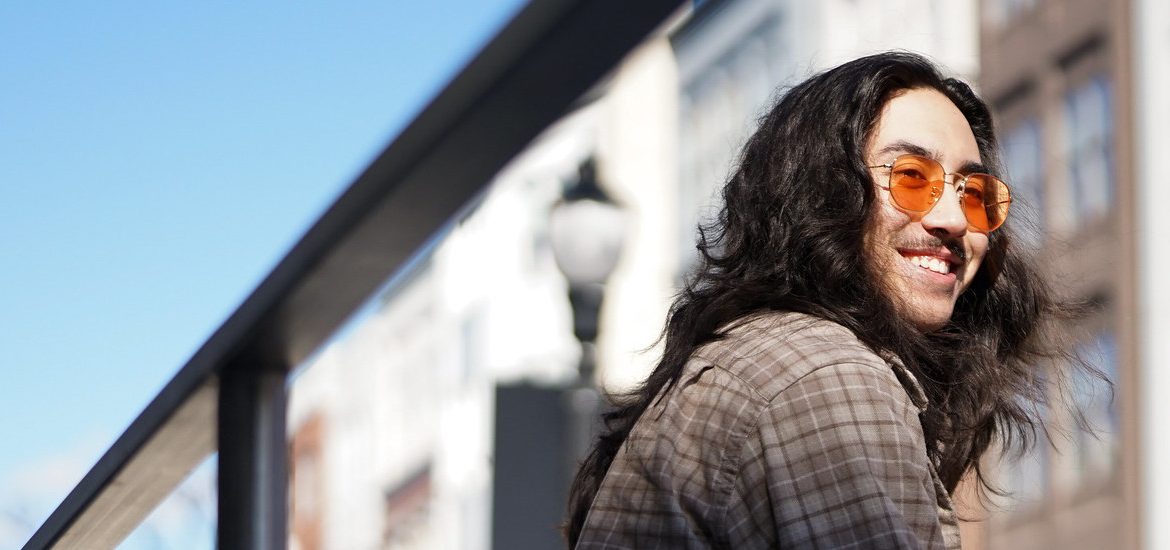
With Rowan Blog’s latest release of #PROFspective, we converse with Lucas Taylor, a commuting senior English education major from West Deptford (Gloucester County). In our discussion with Lucas, we learn of his unique Rowan experience with his new job as a producer for Rowan Blog as well as his own motivation for pursuing higher education in English.
What inspired you to choose your major?
I originally didn’t want to be an English major; I didn’t really find it all too interesting until my senior year of high school. I was always good at writing and analyzing texts but never really took an interest in it until my teacher at the time had seen how proficient I was at it. She saw through me being lazy, and I suppose in a sense, that resonated with me. I wanted to do well to make her proud and at the end of the year I kind of realized that teaching was something I could spend my life doing. I owe a lot of my college career to that teacher and hope she’s doing well with her own life.
How does your field impact the world? What impact would you like to have on the world in your field?
I think teaching is a very admirable occupation. My mother is an art teacher herself, and I learned all of the different tribulations that she goes through with teaching almost hundreds of kids a year. Yet, she’s always so happy and proud to teach all of them. Mainly, I want to be able to reach out to kids like me who really didn’t have an ideal path for the future and show them the different paths that they could take.

How are you involved on campus?
I’m a newly hired producer for Rowan Blog and I have to say it’s pretty exciting. With Covid indirectly wiping out 2-3 years of my college career, I really haven’t spent all that much time on campus. I’m a commuter so I don’t really get around to traveling so much around campus. So far, this job has had me go into buildings that I’ve never even seen and meet with people. It almost makes you feel like a first year all over again.
Could you share a moment you’ve experienced in which you have felt that Rowan is a welcoming environment for you?
Coming into Rowan, I already knew that I had a lot of really close friends that were also going to be attending. I wouldn’t say that there is a specific moment but I guess you could call it a collection of experiences. Whether it was my buddies and myself going to grab a pizza and goofing off in one of the buildings at Holly Pointe or just meeting different people with every new class I take, it’s a different ordeal every time which I find pretty fascinating.

Tell us about one moment that made you feel like Rowan was the right fit for you.
Honestly, there was this one moment where I had just bought a new car to start off my first year here at Rowan. If I remember right, it was like a 1998 Camaro and I had thought it was the coolest thing, especially since it had that retro looking t-roof. I was going to pick up my friends and grab something to eat as a first trip with the car and it didn’t start for some reason. While I was calmly freaking out I was surprised over the amount of students that actually were coming up and asking me if everything with the car was alright. It was a very humbling experience but something that made me feel really included with the entire population.

What would you share with a future student interested in your major?
You really have to appreciate the different classes that are offered in the major. There are so many different welcoming professors such as Professors Falck, Meadowsong and Tucker that really make you invested in what you’re learning. I think with English there’s always something new to learn or even just interpret based on what you think a source is trying to convey which makes it almost tailored to however you want to believe. All in all, I would just say to keep up with reading and not to slack off too much.
Like what you see?
Story and Photography: by Ashley Craven, junior sports communication and media major
Produced by: Lucas Taylor, senior English Education major
Faculty #PROFile: Insight on the Perspective of Dr. Alicia Monroe

During her time here at Rowan University as both an instructor for the Africana Studies department and assistant director at the Office of Career Advancement, Dr. Alicia Monroe can be seen as a beacon for students who are facing uncertainty in their own careers and futures. In her perspective, Dr. Monroe wants to let students know that she understands the trials and tribulations that they might be facing and wants to create a safe space for students to be able to flesh out their own ideas in a safe environment.
In this Faculty #PROFile we learn more of Dr. Monroe’s thinking on her self-created course around Black Lives Matter as well as her own thoughts on academia for students.

For Dr. Monroe, education is a pivotal part of the academic journey. By being able to comprehend and understand the perspectives of others, Dr. Monroe would argue is just as important. The effervescence of this idea inevitably gave foundation to Monroe’s Black Lives Matter course here at Rowan University, where it explores different dimensions of society that is often overlooked due to it being controversial or tucked underneath the carpet. However, the current state of the Black Lives Matter course came through not only the preserving of Dr. Monroe, but also through the request of the student body.
Originally, the course was a part of a coordinating project used to supplement and help students in poor areas. Although many of the different aspects of the project had drastically helped enrich the education of the students involved, Dr. Monroe wanted to give these students opportunities to gain college credits that would help them further along their academic journey.
“[W]e really wanted these students to have opportunities to earn college credits. So, I was asked, ‘Dr. Monroe, you’re the educational guru, you’re the educational wizard, can you develop this course?.’ I already had a lot on my plate but I replied that I would consider it. I was told that I needed the course in two weeks. You don’t develop curriculum in two weeks, especially not a credit-bearing course curriculum. However, I had been doing extensive research on Black Lives Matter, such as the backdrop of Trayvon Martin and all of the unfortunate killings that had increased from there. I noticed that it was finally starting to gain traction and the media attention that it deserved.”

In Dr. Monroe’s perspective, she had wanted this course to not only be be just subjected to the Black Lives Matter cause but for it to apply to aspects that affected a wider population. Although the course may be titled “Black Lives Matter,” Dr. Monroe reassures students that the class affects the entirety and not just a selected group. This can be seen in the various amount of students and their different backgrounds attending each of her classes as they range from white, hispanic, Black and many other minority groups.
The course covers a wide range of different subjects that Dr. Monroe considers important to bring up through class discussion such as climate change, the recent rise of the AAPI (Stop Asian American Pacific Islander Hate) or even giving more context to cases such as Ahmaud Aubrey’s that wouldn’t be presented on television.
“When there were attacks on the AAPI community, we spoke about that. We don’t only focus on a specific race, we focus on the movement and what it is directed on. We had conversations on climate change. I argue that social media has skewed the overall appearance of the movement but if you look at the content it’s so much bigger. Although the core element is Black and brown lives, it’s so much bigger than that,” she explains.
In Dr. Monroe’s eyes, she looks at the bigger picture, the ability to have conversations with others and ultimately reach an understanding. This premise of respectability and the ability to have these difficult conversations is something that is primarily not taught in classes. For her, she wants to normalize these conversations and allow her students to be able to format their own thoughts and opinions on core events throughout the country.
“When I had offered this idea of the course, I had told the coordinators that the course was going to be focused on the research that I have discovered as well as focus on the constructs of race, class and culture. This is what it was all about, the respect of diverse world views, the respect that everyone has a voice, the respect of what is truly fair and just,” Dr. Monroe says. “We can have that level of conversation and it can develop into a credit bearing course.”
From her exhaustive research on the subject matter, Dr. Monroe was able to successfully undergo teaching the course in the summer semester of 2016. However, it was not green lit to continue for the upcoming fall semester. As a result, the course was shelved for multiple years until students expressed their desire to have a course that catered to their own feelings in 2019. In her recollection of the moment, Dr. Monroe states: “Dr. Chanelle Rose had approached me with the sentiment of her students. Dr. Rose had said, ‘I need a course, students are asking for a course that really reflects some of the contemporary issues that they are grappling with. They need a space to release but also be guided into the right formats of collective action.’ I replied, ‘There is a Black Lives Matter course that I developed two to three years ago.'”

Dr. Monroe’s harbored no hard feelings as to why her course ultimately was placed on the back burner for some time; instead, she saw it as a reflection of the status of the country and University at the time. During this lapse, Dr. Monroe kept up with her research with most current events that were applicable to the Black Lives Matter movement and bided her time; she says she knew eventually that it was going to be needed to further the conversation on injustice for those that didn’t have the ability to use their voice.
It’s with these students that motivated Dr. Monroe to keep upholding her teaching values and instill confidence in students and let them understand their own value and worth. Whether it’s through the classes that she is heading or even students that come to her for advice on their own future, Dr. Monroe places a great amount of emphasis for these students and how they come to mold her own futures through her guidance.
The education process can be seen as an ever moving and fluid system. Each stage of this system makes up an intricate cog of modern day academia. For Dr. Monroe, she’s played a vital role in almost every phase of learning; she states she is a “Pre-K through 20 educator.” Her experience is invaluable information for any student facing their own academic issues. Instead of treating each unit in the process of learning, Dr. Monroe’s motivation in progressing has been fueled by gaining an entire understanding of the developmental process.
“I’ve spent a number of years in pre-k through 12, starting off from the classroom and moving up to every level from department supervisor, assistant principal to a middle school, a principal to a high school as well as becoming an assistant superintendent. I had moved up deliberately because I wanted to identify each role in this whole hierarchy of learning,” she says.

As a result of her dedication to her work and her students, Dr. Monroe has exemplified the characteristics of a model educator. Whether it’s through her own spread of her research and rhetoric or through her own unique framework through the educational process, she’s committed herself to create an effect on her students that goes beyond teaching and guidance.
Like what you see?
Story by
Lucas Taylor, Senior English education major
Photography by
Valentina Giannattasio, first year dance and marketing major
Related posts:
How the Africana Studies Major Changed the Course of Jamar Green’s Studies, Leadership and Future
Beyond the Classroom: Meet Africana Studies Club President Nafisat Olapade
First Rowan Student to Earn Diversity and Inclusion Certificate of Graduate Study [VIDEO]

LaWana Boone of Gloucester County, NJ chose Rowan’s Diversity and Inclusion Certificate of Graduate Study for its rigorous curriculum, classes both online and close to home, and opportunities to get involved on campus. This fall, she earned her graduate certificate — the first to do so — and plans to leverage her knowledge to help […]
How Africana Studies Shaped Jamar Green’s Future

Senior Jamar Green is passionate about both his majors: Law and Justice and Africana Studies. But it’s the latter major, which he added further into his Rowan career, that Jamar calls “eye-opening,” strengthening his student leadership at the university and altering his career plans. A first-generation college student and transfer from Union County College, Jamar […]
Writing Her Future Through Rowan Blog [VIDEO]

Using her love of literature, English major Bianca Gray ’21 pursued an on-campus student worker position working for Rowan Blog to develop her interviewing and writing skills. In doing so, she learned more about herself and grew as a person and a professional. “When I worked this job, I started to think more so about […]
Nadine’s Journey: From Glassboro to Morocco

Nadine El Maalem, a senior Communication Studies major with minors in Arabic Studies and International Studies, is far away from our Glassboro campus. As a Global Ambassador at International Studies Abroad, Nadine is embarking on a non-traditional experience by studying abroad in Morocco.
Nadine learned about the opportunity to study abroad during her Rowan 101 class, a course offered to first year students that highlights a wide range of information on the Rowan experience.
Nadine was inspired to learn more about the program and found a perfect fit: an Arabic program in Morocco. “I thought this would be an amazing opportunity to connect with my own culture. I did the paperwork, and the next semester I was on a plane. That was in 2019. Now it’s 2021, and I’m doing the program a second time because it’s just that good,” she says.

Now, Nadine is in Morocco doing an academic and service learning program. This entails four traditional classes and 90 hours of service learning at an organization for class credit. Nadine works at Association Al Amal for her service learning course. “The organization is dedicated to helping women complete/continue their education by teaching them computer literacy skills, offering embroidery courses to make traditional Moroccan clothing, and cooking courses. The organization also partners with local schools to teach students ages 5-16 English,” she explains.

Nadine is getting a much different experience abroad. “I live with a host family and two other student roommates. My host mom is the best. She makes us Moroccan and French food daily. I really feel like I can connect with the culture because I’m totally immersed in it,” she says.
That’s one of the reasons Nadine wanted to go to Morocco again. “I love interacting with the locals and other students. I’m an extrovert, so I find myself chatting with the person who works at the local shops that is selling me cookies. Studying abroad is such a great piece to tack on your resume and is such an amazing experience; “it’s a win-win.”

Back at Rowan, Nadine is a student ambassador with Rowan’s Education Abroad Office. There, she works with the Education Abroad Advisor, Laura Kahler, as well as other student ambassadors at Rowan to promote the different education abroad opportunities available to Rowan students, as well as to provide one-on-one advising, application help, and information about scholarships and funding for study abroad.
Like what you see?
Story by:
Loredonna Fiore, senior public relations and advertising major
Photos provided by:
Nadine El Maalem
Alumni Success: Matt Ruiz ’10 on ROTC and Career

Matt Ruiz, a CPT Exercise Planning Officer, used his Armed Services Assistance ROTC Scholarship to earn a liberal studies degree, which helped him build life skills that he now uses as an office in the United States Army. “I would say that the biggest thing, getting the scholarship and doing the ROTC program here, it […]
M.A. in Criminal Justice Student Says it’s “Never Too Late” to Earn a Master’s Degree

Meet Rowan Blog guest contributor Angela Damiano, a student in the M.A. in Criminal Justice Online program through Rowan Global. After earning her bachelor’s degree in psychology with a concentration in forensic psychology, Angela set off into the workforce. Here, she shares her hesitation at going back to school, the differences she feels between being […]
My First Year as a Disaster Management Major

Internship & Experiential Learning Stories Learn how Rowan Profs go Beyond the Classroom to grow professionally, as well as personally, through internships and other experiential learning. Experiential learning includes hands-on learning opportunities provided through research, student clubs, campus leadership, student worker jobs, service-learning projects and volunteerism. In addition, Rowan’s Office of Career & Professional Development provides career support that’s more than just […]
Air Force Veteran, Strategic Communication M.A. Student Alex Walpole on His Road to Rowan

Today we feature Alex Walpole of Burlington County, a student in the M.A. in Strategic Communication program through Rowan Global. Alex, a retired Air Force officer, shares his military transition from active to civilian life, his goals and challenges as a Strategic Communication student and the unconventional way in which he discovered Rowan. It was […]
Finding My Path and Passion with an English Degree

Meet guest Rowan Blog contributor Nicole Tota of Marlton, NJ (Burlington County), who recently earned her degree in English from the College of Humanities and Social Sciences. She now pursues her master’s degree in Higher Education: Advising at Rowan Global. Here, Nicole candidly shares her degree brought more career questions than answers until she ultimately […]
Taylor Brown and Abby Leitinger Featured in Philly Art Show

Internship & Experiential Learning Stories Learn how Rowan Profs go Beyond the Classroom to grow professionally, as well as personally, through internships and other experiential learning. Experiential learning includes hands-on learning opportunities provided through research, student clubs, campus leadership, student worker jobs, service-learning projects and volunteerism. In addition, Rowan’s Office of Career & Professional Development provides career support that’s more than just […]
Retired Marine Morgan Kelley’s Disaster Management Story

After multiple tours to Iraq, one to the western Pacific and more than 20 years in service to his country, Staff Sergeant Morgan Kelley had planned to enjoy some quiet time and look for government employment after he retired from the United States Marine Corps. But when his family moved close to the Rowan University […]
Cyreelle Cruz, RIPPAC Member and Scholarship Recipient, Shares Her Story

Internship & Experiential Learning Stories Learn how Rowan Profs go Beyond the Classroom to grow professionally, as well as personally, through internships and other experiential learning. Experiential learning includes hands-on learning opportunities provided through research, student clubs, campus leadership, student worker jobs, service-learning projects and volunteerism. In addition, Rowan’s Office of Career & Professional Development provides career support that’s more than just […]
Strengthen Your Writing with Strategic Communication [VIDEO]

Brandon West, a Rowan Global student pursuing his master’s degree in Strategic Communication, shares his thoughts on the program. “No matter what field you want to go into, whether it’s public relations, sports communication or being a teacher, this program is applicable to pretty much any career,” he says.
Studying Abroad in Japan: The Best Decision I Have Ever Made

Meet Dominique DiGiacomo, a Rowan Global student pursuing her master’s in education. She graduated from Rowan with her bachelor’s in English last spring. Dominique had the amazing opportunity to study abroad in Japan during her fall semester of junior year.
I lived in the city of Machida, a suburban area located just 45 minutes outside of center city Tokyo. My typical days abroad consisted of a delicious breakfast (either homemade or from a convenience store), classes anywhere from 9am-5pm (three completely taught in Japanese and two in English), a workout at the on-campus gym, study sessions with my friends, and a night out in the city with my friends! My time abroad helped me to realize that I was indeed in the right major.

As an international student at JF Oberlin University I had the opportunity to apply for a job at their Brown Bag Cafe, an area in which Japanese students could go in order to learn and practice English. It was there that I confirmed my love for teaching English as a second language, loving every moment as I had the opportunity to talk to my Japanese classmates and help them break down the language barrier. This opportunity confirmed for me that I was on the right path and that my future dream of teaching English in Japan could become a reality.
Rowan has set me up for my professional goal of teaching English abroad by giving me the experience of student teaching and education classes that have helped me to study to become a better teacher. My experience abroad has helped me to work toward my goal of teaching abroad, especially since I received the opportunity while I was there to teach English to non-native speakers. I am hoping that my combination of skills I have learned from Rowan as well as abroad will help me in my endeavors to get a job teaching English abroad in Japan.

My time in Japan is one that I will cherish in my memories for years to come. Studying abroad in Japan was such an amazing experience and despite my slight nerves of living all on my own in a country half way across the world, I absolutely loved every moment I was there and am already counting down the days until I can hopefully return. The transition I had from going to college in Japan instead of America was honestly seamless, the only difficulty being adjusting to the time difference which was something my body eventually just got used to.
Besides my three years of study beforehand of the Japanese language and my experience traveling there once before, I still had some nerves when it came to studying abroad on my own so the on-site staff were super helpful during my transition. There was staff at the airport to pick us up and bring us to our housing, staff constantly on duty throughout the building to help us with anything we needed, and staff throughout campus helping to direct us when we were lost or confused.
Studying abroad in Japan was one of the best decisions I have ever made, and it opened up so many doors for me both academically and professionally. I encourage anyone who is interested in studying abroad to take the leap and go for it! It will be an amazing experience that you will never forget!
Like what you see?
Photos courtesy of:
Dominique DiGiacomo
Transfer to Transformed: Five Students Share

Rowan Blog celebrates National Transfer Student Week and partners with the Office of Student Success Programs in spotlighting five students who have found their new college home at Rowan University. Victoria (Tore) Butler, Elementary Education and Literacy Studies major who transferred from The University of Scranton in fall 2019 Why did you select to transfer […]
Andrew Slowinski, 2021 Rick Rosenberg Jr. Memorial Scholarship Recipient

Internship & Experiential Learning Stories Learn how Rowan Profs go Beyond the Classroom to grow professionally, as well as personally, through internships and other experiential learning. Experiential learning includes hands-on learning opportunities provided through research, student clubs, campus leadership, student worker jobs, service-learning projects and volunteerism. In addition, Rowan’s Office of Career & Professional Development provides career support that’s more than just […]
Alumni Success: Byron Bustos Tells It All!

Alumni Success Stories Explore how our alumni propel their Rowan University education into lasting success, as highlighted through our alumni success series. From Rowan University student to lifelong member of the Rowan University Alumni Association, Rowan Profs thrive at every stage of their journey. Go Profs!
Strategic Communication Grad Nadya Ramos

Alumni Success Stories Explore how our alumni propel their Rowan University education into lasting success, as highlighted through our alumni success series. From Rowan University student to lifelong member of the Rowan University Alumni Association, Rowan Profs thrive at every stage of their journey. Go Profs!
Legislative Intern & Scholar: Meet Nick Feldman

Internship & Experiential Learning Stories Learn how Rowan Profs go Beyond the Classroom to grow professionally, as well as personally, through internships and other experiential learning. Experiential learning includes hands-on learning opportunities provided through research, student clubs, campus leadership, student worker jobs, service-learning projects and volunteerism. In addition, Rowan’s Office of Career & Professional Development provides career support that’s more than just […]
Frequently Asked Questions About the Rowan Writing Center Answered With Tutor Bianca Gray

Today, Rowan Blog contributor and Writing Center tutor Bianca Gray answers questions people often ask her about the Rowan Writing Center. Bianca, a senior English major with a concentration in Shakespeare Studies, notes: “Spoiler alert! Don’t be surprised by how much I say RWC.”
What is the RWC?
The Rowan Writing Center (often abbreviated as RWC) is the place on campus to go if you need help with any form of writing and is also a nice place to study. It’s open Sunday-Friday and operates throughout the entire school year as well as the summer. Currently, it’s fully virtual, but there are hopes that it will be open for the 2021-22 academic school year (check the RWC site for up-to-date hours of operation).
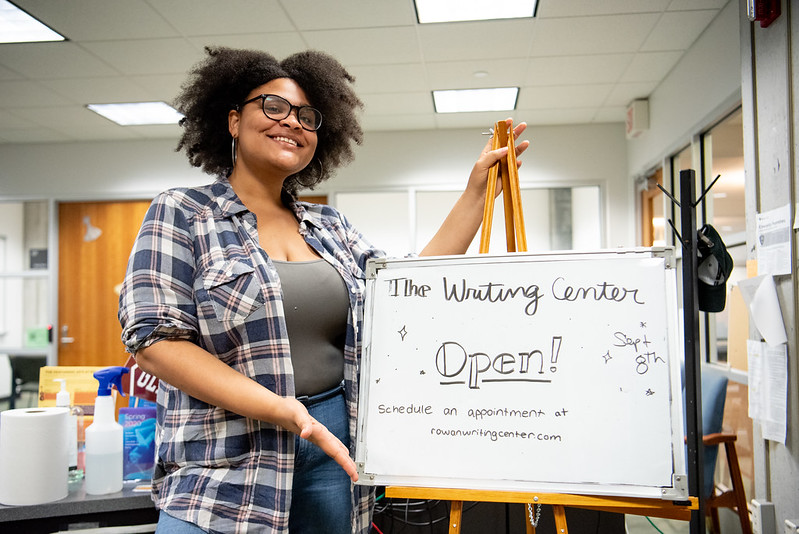
Where is the RWC?
The RWC is located on the first floor of the Campbell Library.
How did you get hired with the RWC?
Buckle up ’cause it’s a long story: The worst part about being a transfer student was everything I had built for myself at my previous institution being torn down. Before coming to Rowan, I spent the majority of my [first] year at my previous school making a name for myself around campus, specifically with the Writing Arts department. I had won the Freshman essay contest and had snagged an internship working with the Writing Center at that campus before I had to leave the school due to an unforeseen change in my finances.
I came to Rowan because I saw how well the Writing Arts department was and hoped to make the same foothold at this institution as I had at my previous one. My academic advisor placed me in a class called ‘Tutoring For Writing’ where I met one of the nicest professors on campus, Dr. Leslie Allison. I told Dr. Allison about my situation and how I wanted to be involved with the writing department on this campus and, while she couldn’t just give me a job, she helped me strengthen my tutoring skills to make me properly prepared to apply to work at the Writing Center when the time came. Thanks to Dr. Allison’s help as well as my newly strengthened skills, I was able to get a job with the RWC.
Will the hiring process be as dramatic for me?
No, I’m just dramatic by nature. The hiring process is pretty straightforward. Applications go out in the spring, then there’s interviews, then you’ll know if you got the job relatively quickly.

What does your job consist of?
Students from all over the university (both undergraduate and graduate) make appointments with my co-workers and I in order to get feedback on any given writing assignment. We don’t just look over English or writing major papers; we look and give feedback on papers that span across many different majors.
The RWC hires people of many different majors so that we’re better equipped at helping all students. We even have Engineering and Biology major tutors in order for them to help students who need help with lab reports.
On top of that, tutors also work closely with first year writing classes and hold weekly hour-long sessions in order to help first year students with their home/classwork as well going over things they may have been struggling with in class.
So if I go to the RWC for help with a paper, will they edit it for me?
No, RWC tutors are not editors. Editing a paper does nothing to help a student grow. It’s like when a teacher just X’s something you wrote out and writes wrong next to it. If you don’t know what the problem is then how can you be expected to solve it? RWC tutors, however, will go through your paper and mark areas where they see repeated problems and discuss those problems with you so that you can better understand the issue and learn not to make those same mishaps again.
What I do is this: If I see a repeated problem in a paper, I correct it the first time and mark it the next two times but don’t correct it. After that, I don’t correct or mark the problem at all. I discuss the issue with the student and expect for them to go back through the paper and find places where they see the problem and correct it themselves. Editing a paper doesn’t help a student to become a better writer.
What’s the best part about working there?
Definitely my co-workers and supervisors. Celeste, Donna and Cate are some of the coolest people I’ve ever met since being in college. I remember taking Shakespeare my first semester of working at the Writing Center and Cate always taking the time out of her day to better help me understand my work for the class, something she was under no obligation to do. It’s little stuff like that that makes me really appreciate them. My coworkers are cool as well. They’re a very boisterous group of people (more boisterous than you’d expect a group of tutors to be), but they all mean well. I remember my coworker, Nia, going out of her way to make me feel included and help me out when I first started. Having such a positive work environment with friendly faces makes the job so much easier.

What’s your advice to anybody nervous to come to the RWC in fear of their paper being judged or criticized harshly?
The RWC is a no-judgement zone. No tutor wants to read a paper and rip it apart. Everything we say is meant to be constructive and help to make your paper the best it can possibly be. If a tutor does or says something that makes a student feel upset or uncomfortable, report it immediately and it will be handled by the supervisors.
What are some other cool things about the RWC?
They host so many different events throughout the academic year. In a COVID-free school year, the RWC hosts multiple events including movie nights, trivia nights and holiday parties. If you’re ever free, don’t be afraid to come!
Like what you see?
LEARN MORE
Story By:
Bianca Gray, senior English major
Beyond the Classroom: On the Campaign Trail with Political Science Major Stephen Scheuren

Internship & Experiential Learning Stories Learn how Rowan Profs go Beyond the Classroom to grow professionally, as well as personally, through internships and other experiential learning. Experiential learning includes hands-on learning opportunities provided through research, student clubs, campus leadership, student worker jobs, service-learning projects and volunteerism. In addition, Rowan’s Office of Career & Professional Development provides career support that’s more than just […]
#PROFspective: Emergency Management with Kevin McCarthy

Internship & Experiential Learning Stories Learn how Rowan Profs go Beyond the Classroom to grow professionally, as well as personally, through internships and other experiential learning. Experiential learning includes hands-on learning opportunities provided through research, student clubs, campus leadership, student worker jobs, service-learning projects and volunteerism. In addition, Rowan’s Office of Career & Professional Development provides career support that’s more than just […]
Interesting Clubs To Check Out At Rowan University

Rowan University has countless of clubs ranging from staying active clubs, diversity/inclusion clubs, major-specific clubs, residential assistant clubs and more. Rowan Blog contributors each share a club on campus that students should check out!

Outdoors Club
The Outdoors Club is all about exploring the wilderness and connecting with nature. The club takes multiple trips throughout the year to go hiking, kayaking, camping and more. Trips are really cheap and can be free or cost $5-10.
ProfLink: https://rowan.campuslabs.com/engage/organization/outdoors
– Reshaun Timmons, senior Marketing major
Get FIT Club
The Get FIT Club is a great way to volunteer and help an underserved population. If you like staying fit and helping others, this is the club for you. In this club you act as personal trainers for local individuals with special needs.
– RJ Wentzell, senior Exercise Science major
Student University Programmers (SUP)
Help brainstorm campus events, help advertise and work events. Meets the first Wednesday of every month at 9:15 p.m, usually in the Student Center. There are various committees that plan certain events and help with [planning] events. Committees include special events, live events, charitable events, technical services, off-campus events, cinema and marketing. You can meet new people, make friends, and build camaraderie while volunteering and having fun. Their signature programs you can help with and enjoy are Hollybash, Movie Nights, Food Truck Festival, Battle of the Bands and more!
Student University Programmers – ProfLink (campuslabs.com)
– Rachel Rumsby, junior Communication Studies and Public Relations major

Women of Color Collective
Held every other Tuesday of the semester, the Women of Color Collective (often abbreviated as WOCC) serves as a safe space for Rowan’s women of color to openly and honestly discuss their feelings and experiences. It’s sponsored by SJICR and is held in Hawthorn Hall.
ProfLink: https://rowan.campuslabs.com/engage/organization/123
– Bianca Gray, senior English major
Athletic Training Club
This club delves into everything related to the athletic training field. Whether you are an Athletic Training major or just simply interested in the field/major, this club teaches members about rehab, responsibilities as an athletic trainer and rehabilitation for athletes. This club is also useful for athletes looking to develop a deeper understanding of personal recovery.
ProfLink: https://rowan.campuslabs.com/engage/organization/atc
– Natalie DePersia, junior Public Relations major
Residential Learning University Housing (RLUH)
RLUH is an organization catered to residential life on campus. To be a part of RLUH, you can apply to be a Resident Assistant, or RA. RAs are responsible for programming to residents, helping them through their transition from high school to college and connecting students to campus resources. Some major perks of being an RA are the amazing transferable skills learned and free room and board.
ProfLink: https://rowan.campuslabs.com/engage/organization/rluh
– Loredonna Fiore, senior Public Relations and Advertising major

PRSSA
The Public Relations Students Society of America is an organization for students pursuing careers in the communication field. The club provides networking opportunities as well as special events such as virtually meeting with PR practitioners, participating in Organ Donor Day and even picnics. Meetings are held bi-weekly on Wednesdays at 5 p.m.
ProfLink: https://rowan.campuslabs.com/engage/organization/rowanprssa
– Nene Diallo, senior Public Relations major
RU Puppet Artists (RUPA)
RUPA was founded in Fall 2020 by TJ Jacobs to cultivate the art of puppetry at Rowan University and beyond through sustainable and accessible practices. We are an experiential and collaborative organization dedicated to the puppetry and artistic growth of our community using proven educational techniques. Members can expect to learn not by sitting in the classroom or in virtual meetings, but by actually creating artistic experiences for their communities.
Contact: RUPUPPETARTISTS@gmail.com
ProfLink: https://rowan.campuslabs.com/engage/organization/rupa
– Nick Flagg, senior Theatre and Advertising major
Rowan Photography Club
Rowan Photo Club is a great place for ANYONE interested in art, photography, modeling and more. We host meetings with fun games and activities. We have photo contests and the winner gets featured on our instagram. We plan to have in person photo walks and photography meets. The club is a fun environment with cool people.
Follow us on instagram! @RowanPhotoClub
– Stephanie Batista, junior Music Industry major

Like what you see?
Story by:
Natalie DePersia, junior public relations major
Rowan Abroad: Recent Graduate, Chloe Senatore, Talks Acceptance into Trinity College in Dublin

English major and Rowan Blog contributor Bianca Gray sat down with fellow English major and recent graduate, Chloe Senatore, to talk about her acceptance into Trinity College in Dublin, Ireland. Chloe not only discusses the journey that led her to Trinity College but how the English Department at Rowan helped her along the way.
Can you tell us a little bit about your graduate program and what you’ll be studying?
I’m studying Irish writers. I’ll be focusing on Irish literature and Irish writing at Trinity College in Dublin where many of those writers went to school. It’s a one-year program but it’s going to be really cool and I’m really excited. I definitely feel as though the classes I’ve taken at Rowan and the professors I’ve worked with have prepared me to do something like this.
Was it always your intention to study abroad for graduate school?
No, actually. I wasn’t even fully planning on going to graduate school. I just wanted to apply to this one singular program to see if I could get in. It’s a difficult program to get into but I knew if I didn’t apply then I would never know and spend the rest of my life sad about it. I didn’t apply to any other programs. If I didn’t get into Trinity then I was just going to enter the workforce but, lo and behold, I actually did get accepted and that’s what I’m doing.
Why did you choose Irish Writing to be your field of study?
That’s very personal to me. I’m Irish. I have a big mane of red hair. You’ve seen me. I have Irish heritage on both sides of my family. Irish literature often gets lumped into British literature but Irish literature is its own separate thing, and I really wanted to dive into it more. I chose Trinity specifically to learn more about this field. I literally have a quote by W.B Yates tattooed on my body.
I’m very into not only Irish poetry but the Irish experience in general. I dove into the history of Ireland when I was supposed to go abroad through a program Rowan was hosting before everything happened with COVID. The program was a law class called International Terrorism and, though it wasn’t something affiliated with my major, I was going to take it as a free elective. Since COVID shut down the trip, I’ve just been yearning to go and experience the culture and history of the country.

Can you tell me any specifics about the program you’re enrolled in at Trinity?
It’s a small program. It only accepts around 20 students a year. It’s not a traditional English program. There are multiple different paths I could take, and I could choose to study one specific author. The general structure is that the first semester is just studying all of Irish literature in general, and the second semester is going to be spent with me writing a dissertation on whichever path of Irish literature I choose to study.
Who are your favorite Irish poets/writers?
Seamus Heaney and W.B Yates. They’re just the best.
What inspired your initial interest in literature?
Oh gosh, that takes me back to being a kid and reading Harry Potter. I’ve always been a book nerd. I love to read, and I think it’s something I’ve just always naturally gravitated towards. It’s just been my thing for as long as I can remember.
Why did you choose Rowan to pursue your passion?
I actually transferred to Rowan. I did my first two years of college at a different university but I didn’t like it there. I ended up transferring to Rowan because it was closer to where I lived and I could easily commute to school. My decision to transfer was one of the best decisions I ever made. Rowan’s English department is just so superior to the English department at my other school. I just think that it’s really awesome that I got to be a part of the Rowan English program. The professors are just so cool and knowledgeable. They push you to improve.
Who was your favorite professor to work with overall?
I loved so many of the professors, but I’d have to pick Dr. Falck. She’s just amazing and phenomenal. She’s one of the best teachers I ever had. The feedback she gave and the way she taught was just incredible. I learned so much from her. She even wrote one of my recommendation letters to go to Trinity.
What was your favorite course?
Probably Multi-Ethnic Literature of the U.S. It opened my eyes to see that American literature isn’t just Mark Twain, Emily Dickinson and Walt Whitman. There’s so many people of different ethnicities that wrote some great works that should be more heavily acknowledged in the canon.

How do you feel the Rowan English Department prepared you for graduate school?
They couldn’t have prepared me any better to handle my academic career moving forward. The professors at Rowan don’t just give you an A or a B. They genuinely see you and see your writing and they help you to improve. They aren’t just going off a rubric. They’re genuinely interested in helping people improve on an individual level. There was a time or two where I had a professor give me a B on an essay when I knew for a fact that I did better than some people in the class who got the same or better grades than me. I would voice my opinions to the professor and they would just tell me that I got the grade I got because they knew I could do better.
What advice would you give to a student thinking about pursuing an English career at Rowan?
Whatever you put into it is what you’re going to get out of it. I can admit that I’m a try hard, but what I put into it was what I got out of it. I put a lot of hard work into essays and things like that so I got a lot out of it. My professors gave to me what I gave to them.
Where do you see yourself in the future?
After this next year of grad school, I’ll have a bit of a beefier resume. My goal is to work for a publishing company or work as an editor. I’m not really sure where I’ll be led but I like the idea of reading and editing books for a living.
Like what you see?
LEARN MORE
Story by:
Bianca Gray, senior English major
Photos courtesy of:
Chloe Senatore
Related posts:
The Rowan Writing Arts 4+1 Program: Students Share Their Experiences
Mic Worthy: Earning a M.A. in Writing While Inspiring Students
My Favorite Class: American Material Culture

This story is a part of the “My Favorite Class” series.
Today we speak with recent graduate Anthony Raisley. He earned a degree in History with a concentration in U.S. History and multiple minors in Entrepreneurship, New Media, International Studies as well as a CUGS (Certificate of Undergraduate Studies) in Italian! Anthony comes from Middletown, NJ in Monmouth County and lived on campus all four years of college.
Tell me about your favorite class at Rowan.
There are a few! I have a favorite class for [each of my concentrations]. As far as History courses, one of my favorite classes was the U.S. Since 1945. We studied recent history. That’s my favorite period of American history, post-World War II and on to the present. Even now, I’m taking a class with Dr. Jennifer Janofsky called American Material Culture, it’s an aspect of history that a lot of people don’t realize — for example, the music, decor, and clothes.
A lot of people think of History majors and history in general as date-oriented or event-oriented, but there’s so much more to it. The development of different things is also part of history. I find that class very interesting because it’s basically from the Civil War and on.
Can you share why history is relevant to people who are not History majors?
For example, we can look at technology and how much of a role it has played in our lives, and its development. Fifty to 60 years ago, the refrigerator, oven or microwave were just starting to develop. Now we obviously see with our computers or phones just how that has certainly changed over time. The computers were massive, and now we basically have a computer in our pocket.
I think it’s important for non-history majors to realize that we live in history, and we’re living through it now (obviously with Covid). It’s certainly all around us. Even in car culture, there’s so much technology now within cars, the role of cars, and how that has changed in the development of our neighborhoods. [There is] so much around us that a lot of people don’t realize is history.

Do you ponder on the sociological impact of technology in history?
The first [TVs were in] black and white, now we have color TVs. Now the TVs are even smaller, thinner and bigger. Just the channels and the content you can watch [now] have expanded over time. There used to be only six or seven channels 40 years ago; now we have over 500. There are so [many] things out there for people to see and learn.
What makes the professor of this class so wonderful?
She’s been teaching this class for a while so she’s very knowledgeable. This is her area of expertise. She really connects it to the present as well. It all ties back to the present. We actually just did a class discussion on the Coney Island Amusement Park. Over a hundred years ago when Coney Island first opened up, it was a totally new concept. Now we [have] places like Six Flags. A hundred years ago that would have been a totally foreign thing.

How did this class help to support your academic or professional growth?
I really like public history because of this class. I had never taken too many courses focusing on public history, especially on material culture. I think that definitely prepares me for my master’s degree next year. It’s a great foundation and will help prepare me going forward.
Where do you see yourself in the future?
I hope to work in communications for either a private company or for public officials in the government. I see myself working in media, [although] I’m not entirely sure [on the specifics] yet, but I [have] a general idea. Most likely for a public official doing communication or research for them. I think that’s something that I see myself doing since I’m going to be down in DC.

Like what you see?
Story by:
Marian Suganob, public relations and advertising graduate
Photos by:
Stephanie Batista, junior music industry major
#PROFspective: English Major Bianca Gray Shares Her Rowan Experience

Today we feature senior Bianca Gray, an English major with a concentration in Shakespeare Studies. Bianca is a commuter student from Sicklerville, NJ (Camden County). Bianca shares her experience at Rowan after transferring from a private college in Spring 2019.

Do you commute or live on campus?
“I used to live on campus, but because of personal reasons, I will commute next school year.”
What are some likes and dislikes of your major?
“I enjoy reading, writing, and studying English. The professors in the English department aren’t only supportive in class, but they also help students get jobs in the department. One of my professors recommended me to the Academic Integrity Board after I showed my interest. I got the position instantly, and that wasn’t something she had to do. She placed me in a position where I can interact with higher ups from Rowan and have better recommendations when I apply to grad school. So far, I don’t have any dislikes about my major.”
Why did you transfer to Rowan?
“I transferred from a private college in New York. The school was very expensive, I had complications with the staff and the problem with small colleges is they run it like a boarding school. The college felt just like high school and I didn’t really like that you could be labeled for something you did your [first] year. Rowan is the opposite, it’s a public university, I feel free here, and it’s been very convenient for me.”

What has your experience at Rowan been like so far?
“At first, Rowan seemed culture shocked because it didn’t feel as diverse as I imagined it for a public university. As for friendship, I reached back to high school friends and most could connect since they live close to campus. Overall, I am having a good experience. People at Rowan show they care about the Rowan community, especially my RA.”
What do you like to do for fun?
“I enjoy writing short stories and hanging out with friends. I also like watching old TV shows such as ‘Gossip Girl’ or ‘Pretty Little Liars.’ The older TV shows are just blunt, whereas newer TV shows show faux diversity.”
Do you have any jobs on campus?
“I work at the Writing Center, assist professors with writing, and I intern at the Rowan Blog as a Digital Content Contributor.”

What do you look forward to after graduation?
“My goal is to attend graduate school. There’s a competitive program that offers not just your master’s but your doctorate as well. After that, I would like to work in the higher education field. I would like to become a resident director, vice president or even a dean. I also want to be involved in academia, self publish, and hopefully write novels.”
What is one piece of life advice for current Rowan students?
“Honestly, live your life to the fullest. Do what makes you happy.”
Like what you see?
Story by:
Nene Diallo, senior public relations major
Photography by: RJ Wentzell, senior exercise science major, and Stephanie Batista, junior, music industry major
Beyond the Classroom: Kevin McCarthy and His Time with SGA

Additional Student Wellness Stories Keep reading student wellness stories to learn how Rowan Profs support their mental, physical and emotional well-being. Through Rowan Thrive, Rowan University provides a comprehensive framework designed to help students live in alignment with their values and cultivate resilience across six core areas of well-being. Internship & Experiential Learning Stories Learn […]
Alumni Success: Stephanie Ibe and How She Became a Teaching Assistant in France

Today we speak with Stephanie Ibe, a 2020 graduate who majored in Biological Sciences with a minor in French and Honors and Pre-med concentrations. Stephanie stayed in Le Havre, France for seven months while working as a teaching assistant through the TAPIF Program. Stephanie comes from Franklin Park, NJ in Somerset County. She was involved […]
#PROFspective: History Major Anthony Raisley on Living On Campus

Today we speak with recent graduate Anthony Raisley, who majored in History with a concentration in U.S. History and multiple minors in Entrepreneurship, New Media, International Studies as well as a CUGS (Certificate of Undergraduate Studies) in Italian! Anthony comes from Middletown, NJ in Monmouth County and has lived on campus all four years of college. Anthony graduated this past May.
Advice for incoming transfers or freshmen who want to live on campus?
It’s very exciting to see all the facilities Rowan has to offer and the new things that Rowan is developing. There’s great housing and great options for everybody. I’d definitely say to live on campus if you can because the experiences you get are certainly unique to being an on-campus resident. I very much enjoyed my time living on campus all four years.
What are some of the advantages of living on campus?
It’s much easier to walk to class and to visit friends in other residence halls. Also if I have to meet up with other classmates to work on projects, it’s easy to meet in one of the academic buildings or in one of the resident lounges.

What about practical tips for packing? Tips on what to leave at home?
Each year you get better and better with picking and knowing what you need to bring. To be honest, I never bring enough (lol). There are things where I’m like, “Oh, you really don’t need this.” But you can never have too many sweatshirts if it gets chilly on certain days. Don’t forget the rain boots or rain jacket. Those are things you forget because it’s a beautiful August day when you move onto campus and then you realize once it’s October: “Oh yeah, I need my boots and rain jacket!” Definitely prepare for all of the elements, but it’s great to see the campus change through all of the seasons!
How did you make friends as a resident?
My freshman year, when I moved in, I started off running cross country and track. I was able to move in early. I met the guys on the team. Everyone from Rowan Athletics is fantastic, makes you feel welcome, and helps you with your transition from moving from home into college. My sophomore year I was still running. I [also] started working in admissions as an ambassador. Being able to meet a lot of my fellow ambassadors as a sophomore, junior, and senior, you get a great idea of what Rowan represents as far as all of the different backgrounds and different majors. It’s a great way to meet people that way. It’s a great environment to work in. In my junior year, I started working for the social media team, another great way to meet people and professional staff as well.

How did you get connected with Rowan Social Media?
I saw an email or announcement online. Immediately, I was interested in it because on the side I take photos. Being able to be part of this environment, taking photos of campus, and getting to meet so many people has been fantastic.
What do you want to do professionally after graduation?
After graduation, I’m actually going to Georgetown for grad school. I’m moving to Washington, D.C. because the program I got into was the Master of Arts in Communication, Culture, and Technology. It’s exactly what I love, all those subject areas even with the minors that I have here and also my major. It all fits together. I’m so glad I’m able to pursue that next year. It’s nice because you can pick what you want to focus on. That’s what’s in store for me this fall.
Like what you see?
Story by:
Marian Suganob, public relations and advertising graduate
Photos by:
Stephanie Batista, junior music industry major
Passing the Torch: International Studies, Modern Languages Dual Major on Taking Advantage of Every Rowan Opportunity

If there’s one member of the class of 2021 who truly knows the ins and outs of Rowan University, it’s Ashley Hermansen.
The Gloucester County native and dual major in International Studies and Modern Languages and Linguistics works as an Admissions Ambassador coordinator. In this student leadership role, she has recruited and trained dozens of students to connect prospective Profs and their families with Rowan’s history, culture and campus.

As a sophomore, Ashley led the Spanish Studies Association as its president. She’s also been involved with the Arabic Club and Model UN, contributed articles to Her Campus, coordinated opportunities for the Office of Volunteerism and studied abroad.
“The more you talk to people and the more you take advantage of all the opportunities you have, the more you’re going to feel like you got out of it. And so I feel like I’ve exhausted all my opportunities” at Rowan, Ashley says.
“I’ve done everything. And I’m ready to pass the torch on to the next incoming [first year] class because there are so many things for them to take advantage of. And I know I did, and I know they could totally do the same thing and have just as great and even a better experience, too.”
Her favorite experiences — and people — extend to the classroom as well.

“My advisor, Christine Larsen-Britt, she’s my favorite person on this planet. She has helped get me from point A to point B in college, and I could not have done it without her. She’s the best.”
She adds, “My favorite class was with Dr. Schrader. He was absolutely awesome. He’s turned my research from high school level to academic and professional level. I’ve had experiences with all the Modern Language professors, Dr. Hernandez, Mousa, mainly all of them.”
Ashley hopes when she enters graduate school, it will even compare to the level of connection and care she has had with her Rowan professors.
“They care about you so much. They just want to see you succeed. They’re so happy when you do succeed, they all support you really well,” she says.

Ashley will head to Washington, DC this fall to begin her master’s program in International Development Studies at The George Washington University.
Like what you see?
My Favorite Class: Gender, Sexuality, and Literature

Today we feature recent graduate Amanda Carlin. Amanda earned her degree in English with a minor in Psychology and is from Bridgewater, NJ (Somerset County) where she transferred from Raritan Valley Community College. Amanda’s favorite class is Gender, Sexuality, and Literature in the English department, which was taught by Dr. Yvonne Hammond. Tell us a […]
Faculty PROFile: Joseph L. Coulombe

Meet Dr. Joe Coulombe, an English professor who has been teaching at Rowan University for 20 years.

What is your area of expertise?
I’m a generalist in U.S. literature, but I’ve used that broad framework to develop research specializations in three areas: Mark Twain and the American West; contemporary Native American fiction; and the function of humor in literature.
What inspires you to continue teaching?
Two things: literature is endless, and my students are wonderful.
I’ve always been fascinated by the ideas and artistry of literature, specifically the ways that literary narratives shape our nation and its cultures. Literature involves so much – history, sociology, psychology, philosophy, cultural studies, etc. – that you can never reach the end! There are always new intersections and insights.
Second, I love talking with students about how literature informs our past and present. Rowan students bring such an exciting energy to the classroom, and they share unique and sometimes generational ways of thinking about issues and ideas. The classroom dynamic – that is, students’ interests and backgrounds – directs our discussion. It’s always new!
How would you describe your teaching style?
My goal is to create a collaborative classroom that invites students to voice their own responses about assigned poems, plays, and novels. While I provide interpretive frameworks for our discussions, I adapt my approach to students’ interests. They often alert me to themes and questions that I hadn’t fully anticipated, and I use those moments to redirect our collective focus to how the text addresses their concerns. Ideally, my teaching style is one of informed versatility and structured exploration.

Share an “aha!” moment you’ve had within your discipline that made you feel passionate about your field.
My students and I were talking about a collection of very engaging and funny short stories by Sherman Alexie, and we noticed that the narrator repeatedly and explicitly stated when characters laughed. This seemingly minor detail led us to think about how humor can function in varied ways: as a signal of creativity and intelligence, or as an insulting put-down, or as method of fostering a connection between ostensibly different people.
We increasingly focused on this last possibility, theorizing that humor can create a sort of shared space for people to occupy together. Then we related these moments within the text to the reading experience itself, arguing that Alexie’s fiction builds bridges between groups that have historically been divided. These organic moments of realization and discover are very exciting.
What is one thing you wish people knew about your academic discipline or your research focus?
Majoring in English isn’t simply about learning correct grammar and punctuation. Sometimes the most expressive statements break the rules. Vernacular language is rarely correct, but it can be engaging and insightful.
Second, literary texts don’t “mean anything we want them to.” We support our claims using textual evidence. If we can’t defend our interpretations with evidence, then they are unconvincing at best and wrong at worst.
Our English program prepares students for a variety of career trajectories, not only teaching. Our students learn to work and think independently; they develop their oral and written communication skills; and they build a broad yet detailed understanding of language and culture that facilitates their individual success.
Learn more about the English program at Rowan University.
My Favorite Class: Philosophy of Science

This story is a part of the “My Favorite Class” series.
Madison Dautle is a junior Bioinformatics major. She is from Cherry Hill, NJ (Camden County) and transferred from Stockton University.
What was the name of your favorite class at Rowan?
Philosophy of Science
What department was the class in?
Philosophy (PHIL)
Who taught the class when you took it?
Dr. Nathan Bauer

Tell us a little about what the class is.
Most people assume that science is constantly progressing to explain the true nature of the universe. To explain what it is we see. This class teaches you that isn’t necessarily true. It opens up your eyes to assumptions you hold as a scientist that you probably didn’t even know you were assuming.
Share with us a few details on why this class was interesting or special to you.
This class finally made me think. Sure, I’m good at explaining chemistry and biology, but that doesn’t make you think, or at least not in the same way. That class made me think in ways I never had to before, and it was exciting!
It’s funny to be able to believe something yet not have a fully thought out reasoning for why. Like one hypothesis referred to as the Grue hypothesis. This idea states that all emeralds are green until a certain date when they all suddenly turn blue. Seems silly, right? That can’t possibly be true, but until the date passes, it can’t be proved false. Yet we all believe that the emeralds will stay green when that hypothesis has a 0% chance of occuring. Look it up. It’s really interesting. My brain hates it but also loves it because I want to know why we believe that.

Is there anything else that made this class impactful?
The way Professor Bauer ran the class. He really made it easy to follow while still making us think. He asked for student input and gave us the opportunity at the end of the semester to present one of our own ideas as a group. I still think about that class daily, and it’s been a while since I’ve taken it.
What makes this professor great?
He’s engaging. Quirky. Kind of what you’d expect from a philosophy professor, but you can tell he loves it. Sometimes you’ll ask a question and he’ll become confused because he didn’t think of that, but he just tells you to go write it down because it’s a good idea. He supports a learning environment and gives adequate room to grow.

How did this class help to support your academic or personal growth, or your professional goals?
To be honest, I thought I would hate this class. Turns out it was the best possible thing that could have happened to me. I finally have something to really THINK about. I am thinking about things that can’t be reconciled by a Google search or even a bit of heavier research. The answers for these questions aren’t written down because no one has truly figured them out yet. Academically and professionally, it can help just broaden my horizons. But personally, it entertained my brain.
I’m lucky that I don’t struggle with understanding most teachable concepts, but with this class, the more he taught, the more questions I had. A really amazing class.
What are your professional goals?
I would like to perform genomics research using bioinformatics. Currently, I am interested in long-term memory — what genes, and in what concentrations, are expressed during memory recall and consolidation.
Like what you see?
Story by:
Caitlyn Dickinson, senior public relations and advertising major
Photos by:
Joe Gentempo, senior art major
Alumni Success: Photography Studio Owner Gabi Previtera

Alumni Success Stories Explore how our alumni propel their Rowan University education into lasting success, as highlighted through our alumni success series. From Rowan University student to lifelong member of the Rowan University Alumni Association, Rowan Profs thrive at every stage of their journey. Go Profs!
Senior Reflects: Sarah Dixon, Law & Justice Studies Major Thanks Outstanding Professors

Today we speak with Sarah Dixon, a graduating senior Law & Justice Studies major from Philadelphia. Sarah is a commuter who transferred from Rowan College at Burlington County (RCBC).
Could you please share your favorite moment with a faculty member or a favorite experience in one of your classes?
In my Public Speaking class, the professor was 9 months pregnant. Each class, she would tell stories at the beginning of class about her life. She had four kids already, and the way she told the stories was so funny and real! I loved her class!
What are your career aspirations?
I aim to be a public defender.
How did the people or programs at Rowan help to support you with your professional growth or career aspirations?
The Law & Justice Studies program really helped shape me in the way I think and view things now.

Do you want to give a thank you shout out to your family, friends, advisors or mentors?
I wanna give a huge shout out to Professor Buie who teachers Law Seminar because he is the best professor on earth!
Who is your favorite professor? What class did you take them for? And why is this person your favorite?
My favorite professor is Buie. I have him for Law Seminar. He is the most intelligent, down-to-earth professor I ever had!
What advice would you give to incoming freshmen or transfers about making the most out of their college experience?
Be yourself and follow your own path! Everything happens for a reason and as long as you choose good over evil you will succeed in college and in life!
Like what you see?
Story by:
Marian Suganob, senior public relations and advertising double major
Meet Transfer Profs: Liberal Studies Major Erin Finter

Meet incoming transfer student and first-generation college student Erin Finter! Erin is an aspiring Liberal Studies major from Medford, NJ (Burlington County) who transferred from Rowan College at Burlington County. She shares more about what she’s looking forward to at Rowan University and she gives advice to other transfer students.

Welcome to Rowan! Could you share with us one thing you are looking forward at Rowan University?
New professors!
What is one hobby, activity, sport or club that you’re involved in that you’d like to continue at Rowan?
I’m currently the VP of the criminal justice club … I’d love the chance to continue that!
What majors are you considering and why?
I’ve chosen liberal studies with a focus in law.
Did you tour Rowan or attend any virtual events? If so, which ones, and what did you think?
The 3+1 info event. It was well put together and full of great information!
Do you have advice for other transfers who haven’t committed to a school yet?
Figure out what you want to do after graduating and pick a school bed equipped to help you achieve it!
Where are you going to live next year?
Renting off campus!
Like what you see?
Story by:
Bianca Torres, senior music industry major
History Graduate Student Shares: Teaching Online and Supporting Distant Students [VIDEO]

Like what you see?
Video by:
Adam Clark, senior Radio/TV/Film major
Max Morgan, senior Radio/TV/Film major
Brian Seay, sophomore sports communication and media major
Meet Transfer Profs: Human Services & Psychology Major NyEsha Cintron


Meet incoming transfer student NyEsha Cintron. NyEsha is a first-generation Human Services and Psychology major from Maple Shade, NJ (Burlington County) who transferred from Rowan College of Burlington County. She shares how she ended up at Rowan and what she’s looking forward to!
Welcome to Rowan! Could you share with us one thing you are looking forward at Rowan University?
I am looking forward to meeting new people, the ability to foster lasting relationships and grow in experience with my area of study. I am excited to see how school will impact my life as well as how I will impact the lives of others.
What is one hobby, activity, sport or club that you’re involved in that you’d like to continue at Rowan?
I’d like to get involved in the Human Services Club or a language club.
Is there anything you’re hoping to discover about yourself at Rowan? Grow a new skill? Try a new interest? Starting a new activity, sport or club?
I will be taking a Spanish class, and I’d like to see my knowledge increase in this language to speak it fluently.
What majors are you considering and why?
I am a Human Services and Psychology major through and through. I love learning how to better understand people in efforts to better serve them. These majors are very organic to how I am wired, and I feel that I can be my best by furthering my education in these areas of studies.
Did you tour Rowan or attend any virtual events? If so, which ones, and what did you think?
I haven’t had the time to do so, but am awaiting orientation for transfer students, can’t wait!
Do you have advice for other transfers who haven’t committed to a school yet?
Do it and get started!
Where are you going to live next year?
Commute from home.
What is one thing about Rowan itself that you liked?
I like that Rowan participated with community colleges to ensure continuity of learning to a accredited university.
Like what you see?
Story by:
Bianca Torres, senior music industry major
Beyond the Classroom: Junior Ad Major Madelaine Mayfield and Her Passion for Nonprofits

Internship & Experiential Learning Stories Learn how Rowan Profs go Beyond the Classroom to grow professionally, as well as personally, through internships and other experiential learning. Experiential learning includes hands-on learning opportunities provided through research, student clubs, campus leadership, student worker jobs, service-learning projects and volunteerism. In addition, Rowan’s Office of Career & Professional Development provides career support that’s more than just […]
From Past to Present: History Shares A Lesson [VIDEO]

“It’s a cliché to say, but you understand history so you don’t repeat it,” says Timothy Dewysockie, a Rowan Global M.A. in History student. Graduates with a master’s degree in history have the opportunity to position themselves in roles across a variety of fields, including educators, museum curators or archivists.
7 History Majors Share How Their Degree Supports Their Professional Goals

“This major supports my professional goal of being a teacher and continuing to give back to my community and my country. I am excited to see where my dual major takes me,” says junior Frank Gurcsik, a History and Education major from Gloucester County. “My major has been helping me to prepare and become an educator […]
TRANSFERmation Tuesday: Future High School Teacher Gianna Venturini

Meet Gianna Venturini, a Secondary Education and History major and Psychology minor. Gianna is a transfer student from Monmouth University but is originally from Rockaway, NJ (Morris County). She shares with us why she chose her major and why she chose Rowan!

What are your professional goals? And how is Rowan (your program, faculty, etc.) helping to support you in those goals?
I am currently a senior in the College of Education studying to become a high school teacher. The COE has provided me with so many opportunities to be hands-on in real classrooms, and has continued to support me as I do my clinical practice this semester!
How does your field impact the world? What impact would you like to have on the world in your field?
I truly believe that becoming a teacher is one of the most important and impactful career fields that a person can get into. As teachers, we are responsible for educating and cultivating the next generation of thinkers and leaders. There is nothing I want more than to inspire and encourage my students to pursue their passions and be there to support them during such an important phase of their lives.
What inspired you to choose your major?
I always knew that I wanted to be a teacher; I was one of the few kids who always loved going to school and had a true love for learning. When I got to high school, I had a really difficult time struggling with mental health issues and I never felt like I had a true support system in a teacher or counselor at the school.
Once I graduated, I knew that I wanted to become the teacher I had needed at such a difficult point in my life, and that is my number one priority as a future educator.
As a student from North Jersey, how did you become aware of Rowan University?
Many people from my high school had gone to Rowan or were planning to after graduation! I also have a family member who attended Rowan.
How long is your trip/drive “home” to North Jersey?
The trip home takes me about two hours — a very long, straight and boring drive up the NJ Turnpike!

What are some of the benefits for you, living this distance from home?
I think that two hours is the perfect distance because it’s far enough away that I feel like I am living my own life, but close enough and still in NJ so that I can visit my friends and family for the weekend when I want to go home!
What are a few interesting or new things (to you) about Rowan’s South Jersey area that you would share with future out-of-state students?
Prior to coming to Rowan, I had never been to Philadelphia and I had no idea how close it was to campus! Back home, we always refer to New York as “the city” but when I transferred, I had to get used to people calling Philly “the city.” My best friend and I are actually planning on living in Philly after graduation!
What off-campus, local fun places do you recommend students check out?
As I said before, I love how close Rowan is to Philadelphia, and my friends and I often like to visit the city. As a history major, I love exploring the rich culture and historical significance that Philadelphia holds! There are also so many amazing restaurants and bars to check out, as well as fun shops and public park spaces.
Why did you choose to transfer to Rowan University?
The first time I visited and toured Rowan’s campus, I instantly felt at home and knew I wanted to spend the rest of my college career here. I had such a terrible freshman year, and I was desperately in need of a fresh start. That’s exactly the opportunity I saw at Rowan!
Like what you see?
Story by: Bianca Torres, Senior music industry major
Header photo courtesy of: Unsplash
We are #RowanPROUD to be included on Phi Theta Kappa Honor Society’s 2021 Transfer Honor Roll, which recognizes select nationwide colleges and universities that foster dynamic pathways for transfer students.
TRANSFERmation Tuesday: Future History Teacher Kaan Aktas

Today we speak with Kaan Aktas, a senior transfer student from Bergen Community College who majors in History and Subject Matter Education. Kaan, a remote student from Fairview, NJ (Bergen County), is a first-generation college student.

What are your professional goals? And how is Rowan helping to support you in those goals?
My professional goals are to be the instructor of a history classroom. Rowan, especially my advisor, has done a great job in setting me up for my goals by creating benchmarks for my classes and exams where I can keep track of and complete.
How does your field impact the world? What impact would you like to have on the world in your field?
My field impacts the world by educating the future. I strongly believe that our students are the future of not just our country, but the future of the world. The work and effort you put into a classroom can completely benefit and alter the student’s way of learning for the future.
What inspired you to choose your major?
My passion for history has always been present. Since elementary and middle school I would find the subject interesting. History isn’t just about memorizing dates and people, but how those dates and people have impacted our current society and so forth.
As a student from North Jersey, how did you become aware of Rowan University?
I became aware of Rowan by doing some online research of the top best colleges in New Jersey. I initially fell in love with Rowan while on a tour of the school. The scenery is beautiful, and class sizes are perfectly arranged.
How long is your trip/drive “home” to North Jersey?
My trip “home” to North jersey is approximately an hour and a half.

What are some of the benefits for you, living this distance from home?
The benefit of living far from home is the college experience you could not have gotten anywhere else. Also, the friendships I have built and experiences I have had are one of a kind.
What are a few interesting or new things about Rowan’s South Jersey area that you would share with future students that are not from the area?
In every corner, there are lots of spots to eat on campus! The wide variety of food, not just located inside of the dining hall, gives students lots of choices for some grub!
What off-campus, local fun places do you recommend students check out?
Some attractions just off campus include many parks where you can take a stroll, or even study!
Why did you choose to transfer to Rowan University?
I transferred to Rowan University because of many factors. The professors are truly great! They work with you with your classes. Class sizes were also an important factor in why I chose to enroll. Unlike other universities in New Jersey, you are not put into a big lecture hall with a hundred other students where the professor has a lot more to manage.
Like what you see?
Story by:
Rachel Rumsby, sophomore communication studies and public relations double major
Photos submitted by:
Kaan Aktas, senior history and subject matter education double major
Header photo by:
Anthony Raisley, senior history major
We are #RowanPROUD to be included on Phi Theta Kappa Honor Society’s 2021 Transfer Honor Roll, which recognizes select nationwide colleges and universities that foster dynamic pathways for transfer students.
7 Economics Majors Share Their Professional Goals
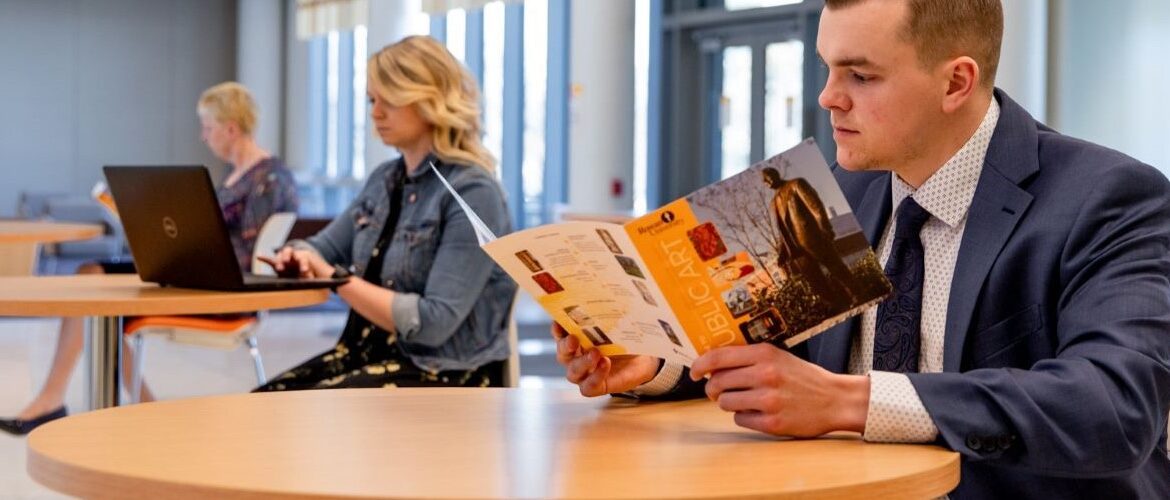
Seven students in the Economics program share with us how they’re dreaming big and where their major will take them in their professional goals. “My long-term professional dream goal is to be able to apply my knowledge of economics and business alongside my personal interests to find a career path best fitting for me,” says […]
Beyond the Classroom: Senior Emergency Medical Technician Maribeth Novsak

Additional Student Wellness Stories Keep reading student wellness stories to learn how Rowan Profs support their mental, physical and emotional well-being. Through Rowan Thrive, Rowan University provides a comprehensive framework designed to help students live in alignment with their values and cultivate resilience across six core areas of well-being. Internship & Experiential Learning Stories Learn […]
Black #PROFspective: Junior Law and Justice Studies and Africana Studies Double Major Jamar Green

Today we speak with Jamar Green, a junior double major in Law and Justice Studies and Africana Studies from Linden, NJ (Union County). Jamar, who transferred to Rowan from Union County College, is a first-generation college student. Jamar lives on-campus at 230 Victoria.
Thank you to Tatianna Addison, senior communications studies major from Browns Mills, NJ (Burlington County), for this series idea to honor Black students during Black History Month.
What is your student experience here at Rowan like, as a Black student at a PWI (Predominantly White Institution)?
I feel that going to a PWI will better benefit me. The experience I have had so far at Rowan had been on the positive side. I do feel included at Rowan. In both of my majors, I feel like they support Black students well.

How did you find your friend group here at Rowan?
The way I found my friend group at Rowan was by joining clubs and a transfer group chat when I first attended.
Are you involved with Black Rowan?
Yes, I am. I am on the executive board for the African Student Association and the NAACP chapter.
What advice would you give to a Black high school student considering your major here at Rowan?
Be ready to work hard and don’t give up no matter what anyone says. It’s not a field they want to see us in, but a field they’re going to need us in if they want to see change.
What are your professional goals?
I want to become a criminal defense attorney.
Like what you see?
Story by:
Rachel Rumsby, sophomore communication studies and public relations double major
TRANSFERmation Tuesday: Sociology Major LaDaysha White

Today we feature LaDaysha White, a first-generation senior Sociology major from Florence, NJ (Burlington County). She also has a Certificate of Undergraduate study in Public Policy. LaDaysha is a transfer student from Ramapo College of New Jersey, and she tells us about her Rowan experience. Tell us a little bit about your favorite class at […]
Alumni Success: Attorney Jennifer Webb-McRae

Rowan alumna Jennifer Webb-McRae shares how impactful her college experience was to her current career as an attorney.
Jennifer admits that Rowan (Glassboro State College at the time) was not her first choice going into college. Growing up in Vineland, she didn’t think she could possibly have her ideal college experience living 30 minutes away from campus.
Sure enough, Jennifer ended up exactly where she was meant to be and made Rowan her home. “I stayed on campus, I rarely went home, and was a part of a phenomenal little community.”

On campus, Jennifer was a Resident Assistant her junior and senior years, a member of the Alpha Kappa Alpha sorority, and was part of the Gamma Tau Sigma law and justice society of Rowan University.
Coming into college, Jennifer knew she wanted to be a lawyer and felt that way all her life. “My parents would tease me and say I would argue every point, so I had that idea since I was a little girl,” she says.
During her time at Rowan, Jennifer made impactful connections that helped catapult her to that goal. “My advisor Dr. Douglass from the Law & Justice department really helped me get into law school by preparing me and guiding me through the process. He steered me in the right direction and gave me advice on taking the appropriate classes and getting good grades so I would be a competitive applicant to get into law school.”
Jennifer got accepted and attended Rutgers Law School after graduating from Rowan.

Jennifer says her education from Rowan really helped her transition to law school. “I was definitely prepared for law school. It was really the mentors I had at Rowan that pushed me, supported me, and made me feel like I could do it.” Jennifer says she still keeps in touch with those people to this day.
Jennifer serves as Cumberland County prosecutor, the first female and first African American appointed to this role.
She also teaches classes at Rowan for the Law & Justice Studies department. During our interview, Jennifer personally offered herself as a resource to this contributor and any other Rowan student. “I was very fortunate to have mentors in my life at every step of my career, and that starts in college,” she says.

Jennifer’s advice for graduating Rowan students would be “go for it, plan for it, and take advantage of opportunities college has to offer you.”
Like what you see?
Story by:
Loredonna Fiore, junior public relations and advertising major
Header photo by:
Anthony Raisley, senior history major

